ALSO: ECONOMIC LOOK AHEAD EXPLORING THE IMPACT OF LEGALIZED CANNABIS
Mike Martin, CEO and founder of r.Cup
CONSIDERING COMMUNITY BANKS IN UNCERTAIN TIMES

Subscribe to Upsize Minnesota at www.upsizemag.com/subscribe Environmental impact Incentives, resources make Minnesota fertile for sustainability businesses
“The mission is to build the infrastructure platform and movement for the reuse economy.”






Receive a complimentary business consultation with Justin Grammens AI WHAT IT CAN AND CAN'T DO (YET) FOR YOUR BUSINESS Founder + CEO of Lab651 and Recursive Awesome, IoT & Artificial Intelligence Weekly News and Cofounder of AppliedAI and Captovation Creator, producer and host of the AppliedAI Podcast, the 501(c)(3) non-profit Emerging Technologies North and an Adjunct Professor at the University of Saint Thomas bit.ly/AI-Justin-Grammens Business Formation Business Representation Intellectual Property Securities Ownership Disputes Helping your business is our business Jeff O’Brien 612-339-7300 | jobrien@chestnutcambronne.com chestnutcambronne.com
Jeff Wessels President/COO
We believe that uncertain times create uncommon opportunities.
We believe that uncertain times create uncommon opportunities.
Possibilities, they’re still out there, but they are different. It takes a partner with the means and the mindset, the insights and the energy to uncover them and make them yours. To see how we are helping our customers succeed, no matter the market, search news at crown-bank.com.
What can we make possible for your business?

EDINA • 6600 FRANCE AVENUE S • 952-285-5800 | CROWN-BANK.COM MEMBER FDIC EQUAL HOUSING LENDER
CONTENTS
July • August 2023 • Vol. 22 No. 4 • www.upsizemag.com
PAGE 16
Cover story
Government incentives and favorable economics make Minnesota a strong state for sustainabilitybased businesses. They aren’t without challenges, but companies building solar arrays, producing reusable cups for concert venues and brokering the reuse of cooking oil are growing and prospering.
BY ANDREW TELLIJOHN
Cover photograph by Tom Dunn
PAGE 4
Founder’s Forum:
Financially sound and without a full-time reporting job for the first time since she was 16, Upsize Founding Editor Beth Ewen ponders how she’ll “manifest” in the next stage of her career

PAGE 4
Staff list: Who’s who at Upsize magazine and how to reach us.
Upsize Minnesota (USPS 024-029) is published bi-monthly by Broad Axe Media, 2908 W 71 1/2 St., Richfield, MN 55423. Periodicals postage paid at St. Paul, MN and additional mailing offices.
Postmaster: Send address changes to Upsize Minnesota, PO Box 23238, Richfield, MN 55423-0238
BUSINESS BUILDERS
PAGE 6
BANKING
Consider partnering with a community bank during turbulent economic times by Jeff Wessels, Crown Bank
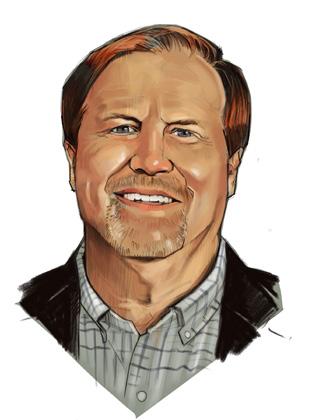

PAGE 8
HUMAN RESOURCES
Recognizing retention issues and dealing with them can help companies keep top talent happy by George Murray, IGNITE, ENGAGE, RETAIN
PAGE 10
LAW
Explaining the ramifications of Minnesota’s new recreational cannabis legislation by Jeffrey O’Brien, Chestnut Cambronne
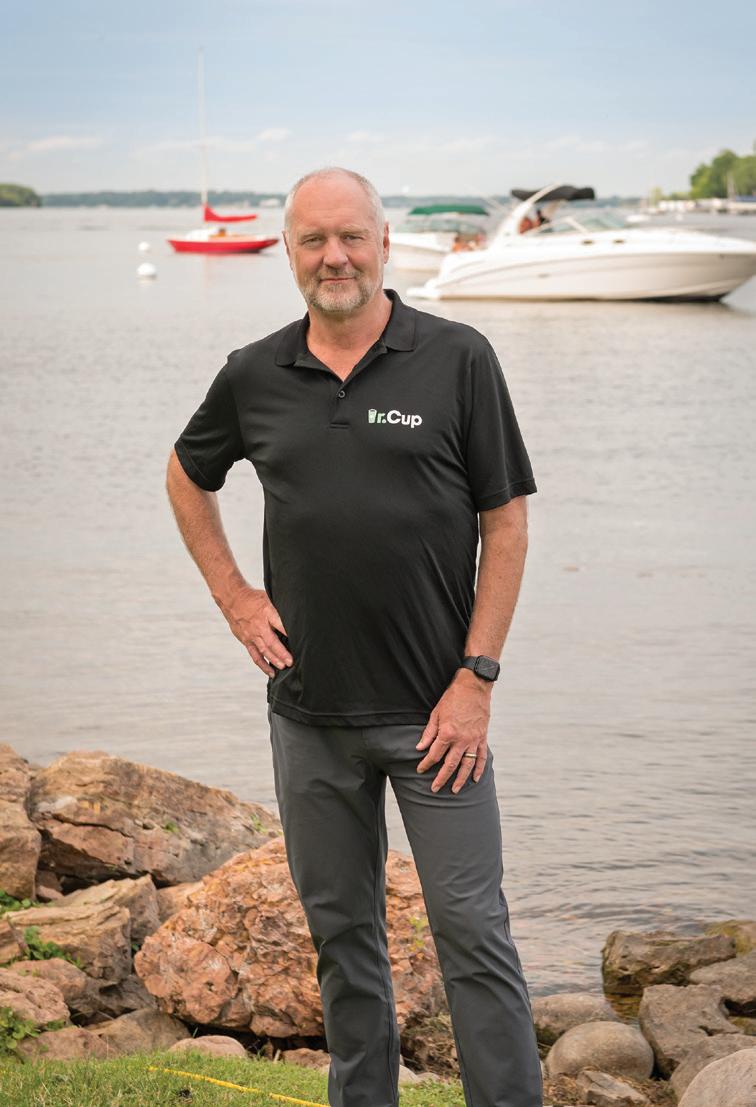
PAGE 12
MERGERS AND ACQUISITIONS
Tips for maximizing your business sale by Lisa Meyer, Sunbelt Business Advisors

COLUMNS
PAGE 20
FEATURE
Consumer confidence and economic indicators are mixed but leaders in key sectors suggest the state and country won’t bottom out in the months ahead
PAGE 22
CATCHING UP
Jamin Arvig, co-founder of aiC Brands and aiCommerce, discusses capitalizing on the ecommerce expertise built up at WaterFilters.net and how learnings from that company evolved into a growing list of holdings

Get more from your money.









Credit cards make purchasing convenient and simple. The right card also gives your business purchasing power to drive growth.









Our experts can help make sure you have the right U.S. Bank credit card to meet your business’s spending needs.

















Start earning more without doing more. Scan the QR code or visit usbank.com/bankerconnect to request your complimentary analysis and consultation.

The creditor and issuer of these cards is U.S. Bank National Association, pursuant to a license from Visa U.S.A. Inc. or Mastercard International Incorporated, and the card is available to United States residents only. Mastercard is a registered trademark and the circles design is a trademark of Mastercard International Incorporated. ©2023 U.S. Bank
FOUNDING PUBLISHER
Wes Bergstrom
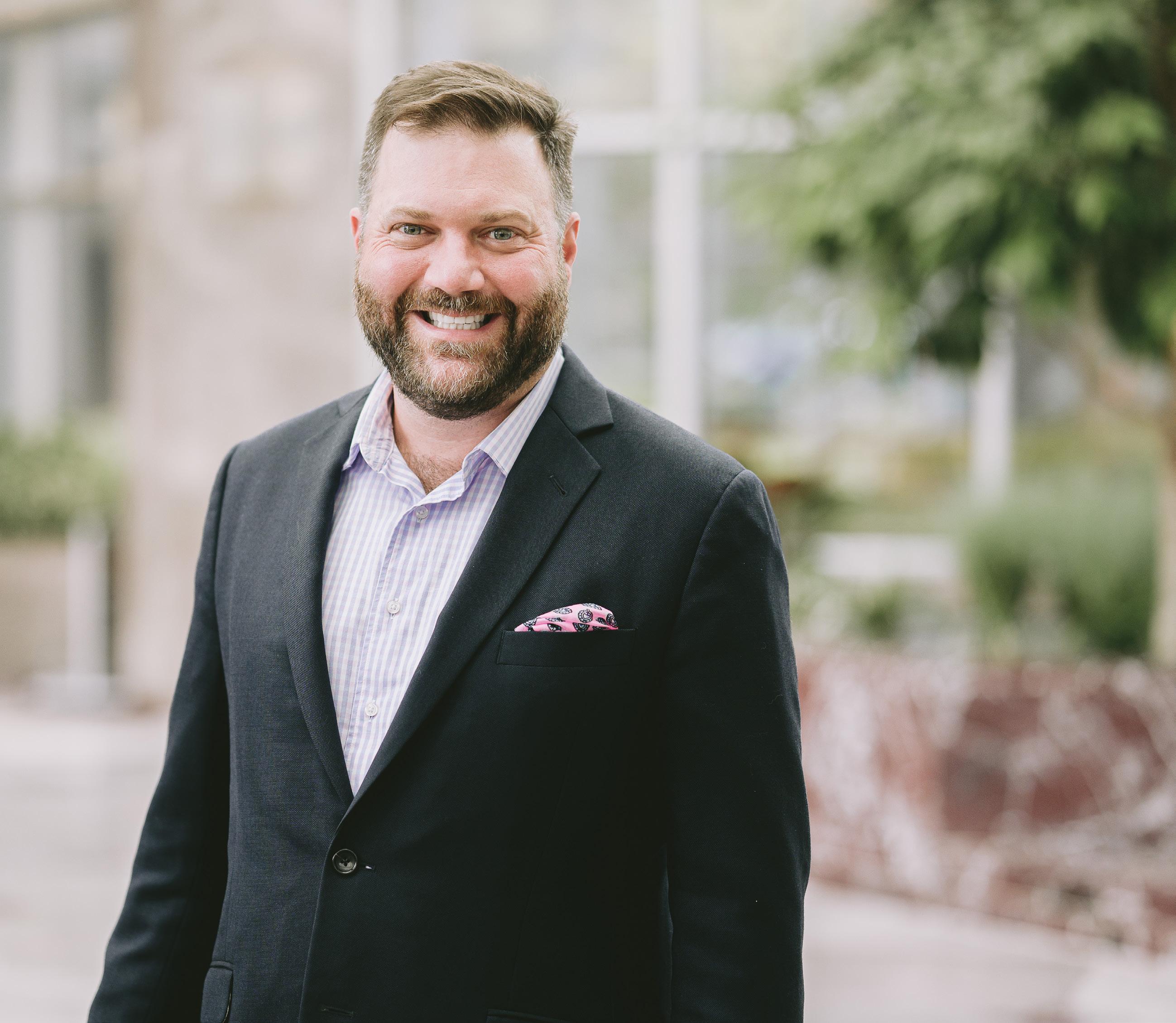
EDITOR AND PUBLISHER
Andrew Tellijohn atellijohn@upsizemag.com
FOUNDING EDITOR
Beth Ewen bewen@upsizemag.com
DESIGN DIRECTOR

Jonathan Hankin jhankin@upsizemag.com
CHIEF FINANCIAL OFFICER
Dan O’Connell dano@upsizemag.com
PHOTOGRAPHER
Tom Dunn tom@tomdunnphoto.com
HOW TO REACH US
To subscribe visit www.upsizemag.com/subscribe
With story ideas email Andrew Tellijohn, atellijohn@upsizemag.com
To advertise email Andrew Tellijohn, advertising@upsizemag.com
To order reprints backissues@upsizemag.com
To order extra or back issues email backissues@upsizemag.com
To suggest Web resource links, info@upsizemag.com
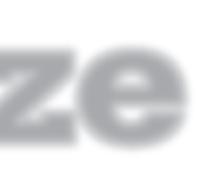
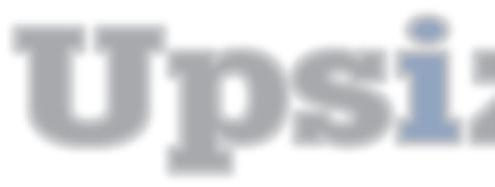
BROAD AXE MEDIA
P.O. Box 23238
Richfield, MN 55423
Main: 612.827.5290 www.upsizemag.com
© 2023 Upsize Minnesota Inc. all rights reserved
When it’s time to manifest
I quit my day job at Franchise Times in a rage in May, after the owner got cold feet and killed one of my articles detailing serious allegations against a large franchise brand.
At first, I felt devastated to let down the dozens of individual owners who were counting on me to give them a voice. I felt disrespect from the publication I helped build into a news powerhouse during the past dozen years. I felt odd, to suddenly not be on deadline for three stories a week as I’d been for nearly four decades.
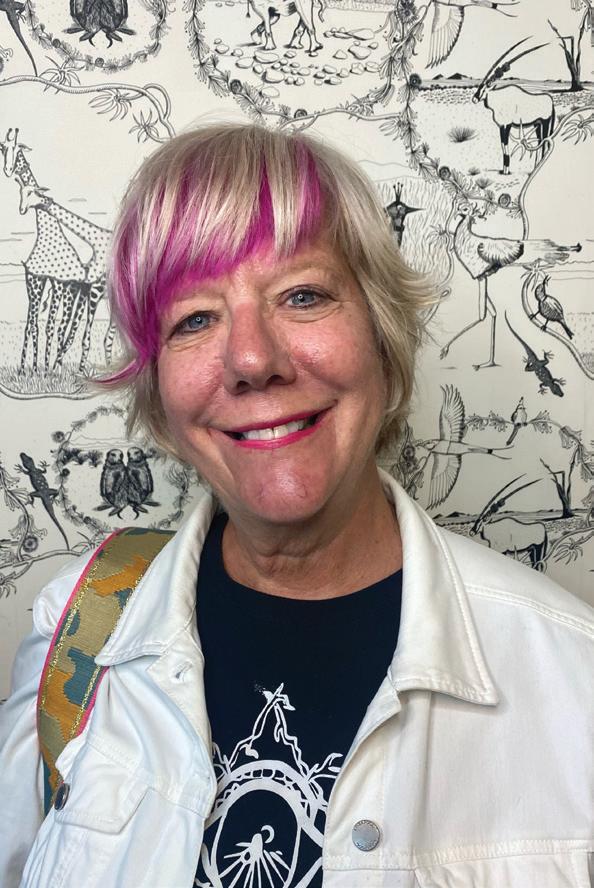
But soon I felt … free! How great to be old and not broke, and finally able to look power in the eye and say no thanks to a bad decision. “I dissent,” as my sneakers say quoting the late, great Ruth Bader Ginsburg, and I walked.
So now what, as all my colleagues and sources ask. Where am I going next? The answer is another first for me: I don’t know, except to say I’ll continue writing this column for as long as Upsize readers will have me. What a delicious and scary feeling. I’m betting many business owners can relate.
I’ve been a reporter since I was 16 and essentially had the same job until now, age 61, at different publications including this magazine I was proud to co-found. I’ve always loved my work — who gets to learn an inch’s worth of info about a mile-wide list of topics and people, and stuff their brains and their pages with the wacky or profound or inspiring in life?
But I’m determined this time to think differently — to “manifest,” as the kids say, meaning roughly “if you can see it, you can be it.” There’s the YouTube star Danny Duncan, who grew up poor in Florida and now, at 31, makes millions every year doing silly pranks in arenas
packed with raving fans. Did he know he’d make it, when he was climbing the Hollywood sign in California wearing only a Speedo, I asked him for a recent story. “I was positive. I was 100 percent sure. I knew I’d be wealthy one day,” he replied.
There’s Suzy Welch, the business professor and best-selling author who wrote a recent Wall Street Journal column about her 20-something students. They’re not interested in striving and grinding like her fellow baby boomers. Rather, they seek “funemployment,” not a career but a series of gigs and experiences to enjoy life and get by. She was equal parts appalled and envious.
“The idea of ‘funemployment’ struck me as bonkers. But then I thought back on my decades working seven days a week,” she wrote.
There’s my 24-yearold son and his bandmates, who work what my best friend and I used to call “slob jobs” while they pursue their passion for music. He’s the drummer in four bands, including Odd Prospect. He composes and releases music regularly and he has his first gig at the storied 7th St. Entry in Minneapolis in July.
So, what should I manifest in my encore career? Sailboat captain? Symphony orchestra conductor? Mayor of Minneapolis, where my husband and I returned this summer after a five-year adventure in Chicago? I can’t wait to find out.
And what about you? Drop me a line, I’d love to hear about it.
—Beth Ewen founding editor bewen@upsizemag.com
4 UPSIZE JULY • AUGUST 2023
www.upsizemag.com
A client-first and conflict-free philosophy: that’s how JNBA Financial Advisors has operated since our founding days over 40 years ago. Since we began tracking in 2001, we have been fortunate to maintain a client-retention rate of 97 percent. In addition, Barron’shas ranked JNBA and CEO Richard S. Brown in the top two in Minnesota on its Top 1,200 list for seven consecutive years. And, Barron’shas ranked JNBA and CEO Richard S. Brown as a Top 100 Independent Advisor in the country for eight consecutive years.

To learn more about how advice driven by advocacy®could help you and your family, begin a conversation with our team by calling us or visiting JNBA.com.
of Barron‘smagazine. Barron‘sis a trademark of Dow Jones & Company, Inc. All Rights Reserved. Please Note: Limitations: Neither rankings and/or recognitions by unaffiliated rating services, publications, media, or other organizations, nor the achievement of any professional designation, certification, degree, or license, membership in any professional organization, or any amount of prior experience or success, should be construed by a client or prospective client as a guarantee that he/she will experience a certain level of results if JNBA is engaged, or continues to be engaged, to provide investment advisory services. Rankings published by magazines, and others, generally base their selections exclusively on information prepared and/or submitted by the recognized adviser. Rankings are generally limited to participating advisers (see link as to participation criteria/ methodology, to the extent applicable). Unless expressly indicated to the contrary, JNBA did not pay a fee to be included on any such ranking. No ranking or recognition should be construed as a current or past endorsement of JNBA by any of its clients. ANY QUESTIONS: JNBA’s Chief Compliance Officer remains available to address any questions regarding rankings and/or recognitions, including the criteria used for any reflected ranking. Past performance may not be indicative of future results. Different types of investments involve varying degrees of risk. Therefore, it should not be assumed that future performance of any specific investment or investment strategy (including the investments and/or investment strategies recommended and/or undertaken by JNBA Financial Advisors, LLC (“JNBA”)) or any non-investment related services, will be profitable, equal any historical performance level(s), be suitable for your portfolio or individual situation or prove successful. A copy of our current written disclosure Brochure discussing our advisory services and fees is available upon request. The scope of the services to be provided depends upon the needs of the client and the terms of the engagement. Please see important disclosure information at www.jnba.com/disclosure.
Advice driven by advocacy ® MINNEAPOLIS: 952.844.0995 | DULUTH: 218.249.0044 | BONITA SPRINGS, FL: 800.675.4793 | JNBA.COM Advisor JNBA Financial Advisors We’re not part of a big bank or brokerage firm. Our boutique, independent firm has been providing unbiased advice for more than 40 years. JNBA is a fiduciary, which means we have a legal responsibility to act in our clients’ best interest in everything we do. Nick Scheibel, CFP®
seen in the 2/22/10, 2/21/11, 2/20/12, 2/18/13, 2/24/14, 2/23/15, 8/24/15, 3/7/16, 8/29/16, 3/6/17, 9/18/17, 3/12/18, 9/17/18, 3/11/19, 9/16/19, 3/16/20, 9/14/20, 3/15/21, 9/20/21, 3/14/22, 9/19/22, & 3/13/23 issues
As
Community banking during turbulent times
by Jeff Wessels
Manage your cash flow in a few simple steps
by Craig Veurink
TIPS
1. Set a realistic goal for when you want to break even. This will help you to focus your efforts and provide a numerical benchmark for projecting your cash flow in the near future
TIPS
1. Community banks typically have the same modern technology as larger banks, but offer a more personal touch.
2. Put cash flow before profits. It might seem counterintuitive, but if you aren’t organizing your cash flow, you’ll run into problems that a profitable quarter might not be able to fix
2. Federally insured and regulated banks insure up to at least $250,000. Plenty of banks offer additional protection.
3. Secure credit ahead of time. Most small business owners should secure as much credit as possible. This is the best way to be prepared for the unexpected
3. Community banks offer a oneon-one connection, as they do not have hundreds of thousands of businesses to serve. They focus on those in the community.
4. Consider using a payroll service. Having the professionals take care of collecting payroll taxes saves them an enormous amount of time, helps streamline their cash flow
4. The community connection companies get with community banks can lead to more flexible services and understanding during difficult times.
5. Unexpected short-term capital needs can be handled with more urgency at community banks, which can be the difference in surviving or losing a business.
5. Schedule your payments. Don’t go delinquent but do divide your payments into categories such as “must pay,” “important to pay” and “flexible payment terms.” This can help keep sufficient cash on hand.
Small businesses are usually founded by entrepreneurs who have a unique vision and a passion that drives them to work late hours, take chances and believe in what they’re doing. But, just as Thomas Edison once said that genius is 1 percent inspiration and 99 percent perspiration, successfully running a small business requires rolling up your sleeves and putting in significant time on more mundane, day-today matters.
“When do I start to turn a profit?”
It’s never been more important to partner with a banking institution that has a record of security and safety that you can rely upon. There are a lot of options for protecting your assets and you should do your due diligence before you trust any institution with your business.
Community banks are an important resource for small businesses, especially in times like these, as they’re equipped with all the modern technology and practices of a larger institution but offer the local and personal touch that only a community bank can provide.
You can be driven, impassioned and have a great idea to fill a niche or serve customers in new ways, but if you don’t attend to the details of the business, you can create for yourself a heap of problems.
Here are a few ways community banks can offer your business safety and stability, while also positioning you for growth.
Seeking a safe, secure banking institution
Here, we’ll look at one of the most important of these business details: managing cash flow. Especially for early startups, knowing how much cash is coming in and going out, and accurately forecasting sales and expenses, is key to maintaining your company’s health.
No matter where you are in your business, keep these things top of mind:
Before we look into the benefits of community banks, let’s take a step back and talk about the safety and security of your money.
1. Know when you will break even
Every small business owner keeps at the front of their mind the question:
According to the American Bankers Association, the safest and most convenient place to store your money is in a federally insured and regulated bank. The main reason is
that your money is insured for up to $250,000 and plenty of banks offer additional protection. And in the 90-year history of the Federal Deposit Insurance Corp. (FDIC), no depositor has ever lost a penny of an insured deposit due to a bank closure.
Rather than wonder, set a realistic goal for when you want to break even. This will help you to focus your efforts and provide a numerical benchmark for projecting your cash flow in the near future.
2. Put cash-flow management before profits
This might seem counterintuitive, since profits are how you survive. However, if you aren’t organizing your cash flow, you’ll run into problems that a profitable quarter might not be able to fix. Keep things organized and well managed so you can be ready for whatever success comes your way.
3. Secure credit ahead of time
In addition to insurance from the FDIC, safe and secure banking institutions offer robust fraud protection to keep your money safe from external threats. These practices may include a multi-factor authentication system to prevent hackers from getting into your account or having technology in place that detects and alerts you about abnormal transactions.
The bottom line is stability. A financially stable bank will be able to provide you and your business with service throughout economic ups and downs. You’ll be able to sleep well knowing your assets are safe regardless of what external events are taking place.
Building financial security through relationships
A community bank provides you and your business with long-term financial security through a rela -
Too often, small business owners wait until they need it to secure credit. This can cause a lot of unnecessary stress, or worse. Talk to experienced business owners in your area and industry ahead of time to know how much revenue you’ll need up front. Take a realistic look at the situation and plan. You might have sufficient cash reserves or a rich uncle who is only a call away, but most small business owners should secure as much credit as possible. This is the best way to be prepared for the unexpected.
6 www.upsizemag.com UPSIZE JULY • AUGUST 2023
BUSINESS BUILDERS banking
6 www.upsizemag.com UPSIZE NOVEMBER • DECEMBER 2022
BUSINESS BUILDERS banking
tionship-based model. There are a couple of ways that a more personal banking approach leads to big results for keeping your money safe.
One-on-one connection
Community banks aren’t run by large corporations, nor do they have hundreds of thousands of businesses they have to take care of. They serve members of the community where the bank is located and they are solely focused on helping the businesses within their community.
Your dedicated banker will take the time to get to know you and your business inside and out. They won’t be giving you one-size-fitsall advice but will provide you with service that’s based on your unique situation and the opportunities for your business.
The deep relationship you form with your banker over time will lead to better financial decisions, better long-term planning and more consistent support over the long term.
On the same team
Everyone working at a community bank has a direct interest in uplifting and making their community a better place. That starts with providing financial support to local businesses and developing relationships with the community around them.
The strength of the community impacts the strength of the bank — and vice versa. There’s always a deeper incentive than you’d get at a national bank for ensuring your business stays healthy and successful. This incentive often leads to more flexible services and understanding when helping you and your business weather tough times.
Help in turbulent times
Having a good relationship with a community bank can keep your business afloat during turbulent times. Unexpected events like sudden economic downturns, COVID-19 or damage to critical equipment could sink your business if you don’t have quick access to capital.
Community banks can provide short-term capital to get your business through a challenging period, often with more urgency and flexibility than national banks. Having quick access to critical funding options can be the difference between riding out a rough patch or losing a business. It gives you the capital to pay your employees, to fix damaged equipment and to implement strategies for adapting to the changing needs of customers.
Community banks also provide personal and detailed financial guidance. They know your business on a personal level and will provide critical feedback on how to maintain cash flow and budget and they’ll use their own cash management services to keep your business running smoothly.
Due to their size and the number of businesses large national banks support, you won’t get the same level of care you’d get from a community bank.
A community bank needs its community to survive and it’ll be more willing to pivot and adjust its services to keep its community afloat when tough times arise.
Contact: Jeff Wessels is president and chief operating officer at Crown Bank: 952.285.5800; concierge@crown-bank.com; www.crown-bank.com; in/jeffrey-wessels-24762b19
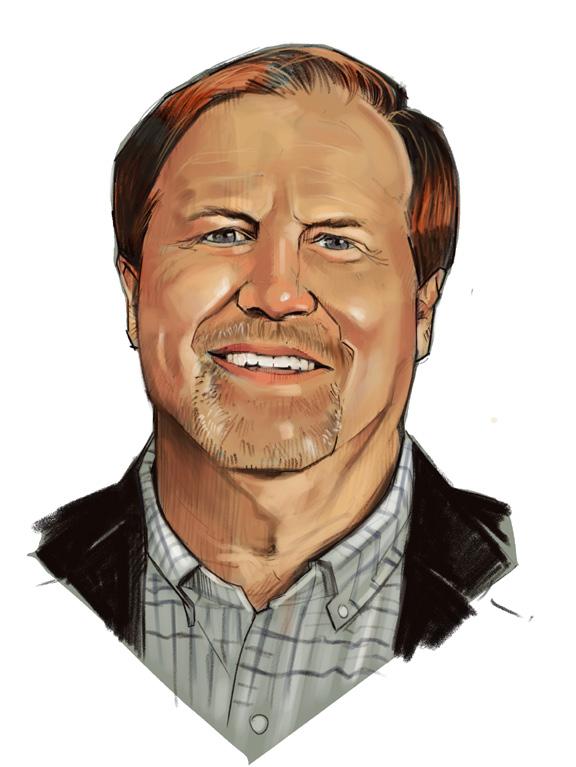
7 www.upsizemag.com JULY • AUGUST 2023 UPSIZE
“A community bank needs its community to survive and it’ll be more willing to pivot and adjust its services to keep its community afloat when tough times arise.”
Jeff Wessels Crown Bank
Addressing retention issues for a more engaged workforce
Manage your cash flow in a few simple steps
by Craig Veurink
by George Murray
TIPS
TIPS
1. Set a realistic goal for when you want to break even. This will help you to focus your efforts and provide a numerical benchmark for projecting your cash flow in the near future
1. In order to address retention issues, you first have to recognize the many signs that they might exist, such as low engagement or high turnover rates.
2. Put cash flow before profits. It might seem counterintuitive, but if you aren’t organizing your cash flow, you’ll run into problems that a profitable quarter might not be able to fix
2. It’s vital to provide opportunities for development. This can include training programs, mentoring, and coaching. Such investments can help employees feel valued.
3. Help improve manager-employee relationships. Providing managers with support to develop their leadership skills. It can help build relationships with team members.
3. Secure credit ahead of time. Most small business owners should secure as much credit as possible. This is the best way to be prepared for the unexpected
4. Foster a culture of open communication and transparency, providing opportunities for employee recognition and promoting work-life balance.
4. Consider using a payroll service. Having the professionals take care of collecting payroll taxes saves them an enormous amount of time, helps streamline their cash flow
5. Schedule your payments. Don’t go delinquent but do divide your payments into categories such as “must pay,” “important to pay” and “flexible payment terms.” This can help keep sufficient cash on hand.
5. Flexible work arrangements can help employees balance their work and personal lives. This can include flexible hours, remote work options, and unlimited vacation time. Each can help increase job satisfaction.
Retention issues are a critical concern for businesses of all sizes and industries. High turnover rates can lead to increased costs associated with recruitment and training, reduced productivity and a negative impact on overall company culture. Recognizing the signs of retention issues and taking steps to address them can help organizations retain top talent and create a more engaged and loyal workforce. In this article, we will explore how to identify retention issues and ways to improve retention.
Small businesses are usually founded by entrepreneurs who have a unique vision and a passion that drives them to work late hours, take chances and believe in what they’re doing. But, just as Thomas Edison once said that genius is 1 percent inspiration and 99 percent perspiration, successfully running a small business requires rolling up your sleeves and putting in significant time on more mundane, day-today matters.
You can be driven, impassioned and have a great idea to fill a niche or serve customers in new ways, but if you don’t attend to the details of the business, you can create for yourself a heap of problems.
Identifying retention issues: One of the first steps in addressing retention issues is to recognize the signs that they exist. Here are some common indicators of retention issues:
Here, we’ll look at one of the most important of these business details: managing cash flow. Especially for early startups, knowing how much cash is coming in and going out, and accurately forecasting sales and expenses, is key to maintaining your company’s health.
No matter where you are in your business, keep these things top of mind:
• High turnover rates: If turnover rates are consistently high, it may be a sign of underlying retention issues. A high turnover rate can be costly and disruptive to the organization.
“When do I start to turn a profit?”
environment or do not feel valued by the organization.
Rather than wonder, set a realistic goal for when you want to break even. This will help you to focus your efforts and provide a numerical benchmark for projecting your cash flow in the near future.
2. Put cash-flow management before profits
• Lack of development opportunities: If employees do not see opportunities for growth and development within the organization, they may be more likely to leave. Lack of development opportunities can also contribute to low engagement levels.
• Poor manager-employee relationships: If managers and employees have a strained relationship, it can lead to lower job satisfaction and increased turnover rates.
This might seem counterintuitive, since profits are how you survive. However, if you aren’t organizing your cash flow, you’ll run into problems that a profitable quarter might not be able to fix. Keep things organized and well managed so you can be ready for whatever success comes your way.
3. Secure credit ahead of time
Ways of improving retention: Once retention issues have been identified there are several steps that organizations can take to address them. Here are some ways to improve retention:
1.
Know when you will break even
• Low employee engagement: If employees are disengaged, they may be more likely to leave the company. Low engagement levels can be a sign that employees are not satisfied with their work
Every small business owner keeps at the front of their mind the question:
Too often, small business owners wait until they need it to secure credit. This can cause a lot of unnecessary stress, or worse. Talk to experienced business owners in your area and industry ahead of time to know how much revenue you’ll need up front. Take a realistic look at the situation and plan. You might have sufficient cash reserves or a rich uncle who is only a call away, but most small business owners should secure as much credit as possible. This is the best way to be prepared for the unexpected.
• Provide opportunities for development: Providing employees with opportunities for development is an essential part of improving retention. This can include training programs, mentoring and coaching. By investing in employee development, organizations can help employees feel valued and create a more skilled and engaged
8 www.upsizemag.com UPSIZE JULY • AUGUST 2023
BUSINESS BUILDERS human resources
6 www.upsizemag.com UPSIZE NOVEMBER • DECEMBER 2022
BUSINESS BUILDERS banking
workforce.
• Offer competitive compensation and benefits: Offering competitive compensation and benefits can help organizations attract and retain top talent. Regularly reviewing compensation packages to ensure they are in line with industry standards and offering benefits such as healthcare, retirement plans and paid time off can help create a more loyal and engaged workforce.
• Improve manager-employee relationships: Managers play a critical role in employee retention. Improving manageremployee relationships can help increase job satisfaction and create a more positive work environment. Providing managers with training and support to develop their leadership skills can help them build stronger relationships with their team members.
• Create a positive work environment: Creating a positive work environment is essential for employee retention. This can include fostering a culture of open communication and transparency, providing opportunities for employee recognition and promoting work-life balance. By creating a positive work environment, organizations can help employees feel valued and motivated to stay with the company.
• Provide flexible work arrangements: Offering flexible work arrangements can help employees balance their work and
personal lives. This can include flexible hours, remote work options and unlimited vacation time. Providing employees with flexibility can help increase job satisfaction and reduce turnover rates.
• Focus on diversity and inclusion: Diversity and inclusion are critical for employee retention. Organizations should focus on creating a diverse and inclusive work environment that values all employees. This can include implementing diversity training, creating employee resource groups and other initiatives that promote diversity and inclusion.
Conclusion
Retention issues can have a significant impact on a company’s success. By recognizing the signs of retention issues and taking steps to address them, organizations can create a more engaged and loyal workforce. Providing opportunities for development, offering competitive compensation and benefits, improving manager-employee relationships, creating a positive work environment, providing flexible work arrangements and focusing on diversity and inclusion are all essential for improving retention. As businesses continue to face challenges in attracting and retaining top talent, it’s more important than ever to prioritize retention as a critical aspect of success.
Contact: George Murray is a global operations supply chain leader, Army veteran and author of multiple books, including IGNITE. ENGAGE. RETAIN.: 952.221.8868; georgecmurray@gmail.com; www.georgeclaystinmurray.com
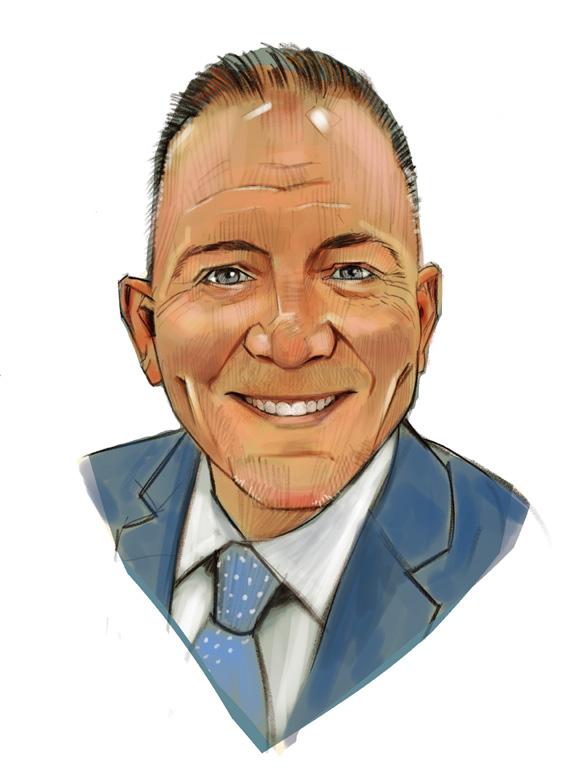
9 www.upsizemag.com JULY • AUGUST 2023 UPSIZE
“Recognizing the signs of retention issues and taking steps to address them can help organizations retain top talent and create a more engaged and loyal workforce.”
George Murray author of IGNITE, ENGAGE, RETAIN
BUSINESS BUILDERS
banking
On May 30, 2023, Gov. Tim Walz signed into law House File 100, which legalizes recreational cannabis in the state of Minnesota.
concentration of not more than 0.3 percent on a dry weight basis.
Manage your cash flow in a few simple steps
Effects of the recreational cannabis legislation
The new law, while ending the prohibition of cannabis in this state, also preserved the unique tetrahydrocannabinol (THC) beverage market, which arose out of legislation passed in 2022 whereby Minnesota became the only state to regulate hemp THC separate from marijuana.
The law explicitly preserved the authority of the U.S. Food and Drug Administration (FDA) to regulate products containing cannabis or cannabis-derived compounds under the Federal Food, Drug & Cosmetic Act (FD&C Act).
The Alcohol and Tobacco Tax and Trade Bureau (TTB), the federal agency charged with regulating the manufacture of alcoholic beverages, defers to the FDA on whether the use of hemp ingredients would violate the FD&C Act.
Craig Veurink
by Jeffrey O’Brien
TIPS
Under the 2022 law, Minnesota’s breweries were permitted to produce non-alcoholic beverages infused with 0.3 percent THC derived from hemp, in the form of CBD, delta-8 and delta-9.
TIPS
1. Minnesota House File 100 stipulates that the existing market for hemp-derived THC food and drink will be allowed to continue as long as businesses register with the Minnesota Department of Health by October 1.
1. Set a realistic goal for when you want to break even. This will help you to focus your efforts and provide a numerical benchmark for projecting your cash flow in the near future
2. The health department will regulate hemp-derived cannabis products until 2025. Office of Cannabis Management takes over in March 2025.
2. Put cash flow before profits. It might seem counterintuitive, but if you aren’t organizing your cash flow, you’ll run into problems that a profitable quarter might not be able to fix
3. Vapes, flower and other products with hemp-derived THC remain illegal and THC-P was outlawed as part of the bill. The latter is a potent synthetic that has led to reports of illnesses.
3. Secure credit ahead of time. Most small business owners should secure as much credit as possible. This is the best way to be prepared for the unexpected
4. The final bill also allows liquor stores to sell lower-potency hemp edibles and beverages. This had previously been banned.
4. Consider using a payroll service. Having the professionals take care of collecting payroll taxes saves them an enormous amount of time, helps streamline their cash flow
These so-called “cannabinoid beverages,” while not as potent as fullstrength cannabis, have proven to be extremely popular with consumers, so much so that HF 100 was amended to preserve this market for Minnesota breweries.
Small businesses are usually founded by entrepreneurs who have a unique vision and a passion that drives them to work late hours, take chances and believe in what they’re doing. But, just as Thomas Edison once said that genius is 1 percent inspiration and 99 percent perspiration, successfully running a small business requires rolling up your sleeves and putting in significant time on more mundane, day-today matters.
Cannabinoids defined
“Cannabinoids” are a group of substances found in the cannabis plant. The main cannabinoids are THC and cannabidiol (CBD). However, according to the National Institutes of Health’s website, besides THC and CBD, more than 100 other cannabinoids have been identified.
You can be driven, impassioned and have a great idea to fill a niche or serve customers in new ways, but if you don’t attend to the details of the business, you can create for yourself a heap of problems.
Regulations from 2018 Farm Bill
Here, we’ll look at one of the most important of these business details: managing cash flow. Especially for early startups, knowing how much cash is coming in and going out, and accurately forecasting sales and expenses, is key to maintaining your company’s health.
Industrial hemp production became legal in the U.S. with the passage of the Agricultural Improvement Act of 2018, known colloquially as the “2018 Farm Bill.” The 2018 Farm Bill amended the definition of marijuana under the Controlled Substances Act to exempt “hemp,” as follows:
“When do I start to turn a profit?”
Rather than wonder, set a realistic goal for when you want to break even. This will help you to focus your efforts and provide a numerical benchmark for projecting your cash flow in the near future.
2. Put cash-flow management before profits
As such, and aside from three hemp seed ingredients, the TTB will reject any application for an alcoholic beverage formula containing hemp ingredients, including CBD, delta-8 and/or delta-9. However, a brewery producing a non-alcoholic beverage is not required to receive formula approval from the TTB, and so long as such beverage is not sold outside the borders of the state where the brewery is located, the FDA does not have jurisdiction under the Interstate Commerce Clause of the U.S. Constitution to prohibit production of such beverage.
This might seem counterintuitive, since profits are how you survive. However, if you aren’t organizing your cash flow, you’ll run into problems that a profitable quarter might not be able to fix. Keep things organized and well managed so you can be ready for whatever success comes your way.
The Loveless Decision and 2022 legislation
5. Schedule your payments. Don’t go delinquent but do divide your payments into categories such as “must pay,” “important to pay” and “flexible payment terms.” This can help keep sufficient cash on hand.
5. This legislation has effectively opened up an entirely new industry with the legalization of recreational cannabis while also preserving the growing THC beverage industry, which has quickly become popular in Minnesota.
No matter where you are in your business, keep these things top of mind:
1. Know when you will break even
Every small business owner keeps at the front of their mind the question:
The term “hemp” means the plant Cannabis sativa L. and any part of that plant, including the seeds thereof and all derivatives, extracts, cannabinoids, isomers, acids, salts and salts of isomers, whether growing or not, with a delta-9 tetrahydrocannabinol
3. Secure credit ahead of time
Too often, small business owners wait until they need it to secure credit. This can cause a lot of unnecessary stress, or worse. Talk to experienced business owners in your area and industry ahead of time to know how much revenue you’ll need up front. Take a realistic look at the situation and plan. You might have sufficient cash reserves or a rich uncle who is only a call away, but most small business owners should secure as much credit as possible. This is the best way to be prepared for the unexpected.
The impetus for last year’s legislative action was a Minnesota Court of Appeals opinion in a criminal matter which many felt was erroneous. In its ruling on an appeal of a criminal conviction where the defendant had in his possession vape cartridges containing THC derived from hemp, the Court of Appeals in State of Minnesota v. Loveless held that the term “dry weight” being used to measure whether a product contained the legal amount of 0.3 percent THC implied that liquid products containing any amount of THC were not exempt under Schedule I of the Minnesota Controlled Substances Act. This ruling has since been overturned by the
10 www.upsizemag.com UPSIZE JULY • AUGUST 2023
BUSINESS BUILDERS law
6 www.upsizemag.com UPSIZE NOVEMBER • DECEMBER 2022
Minnesota Supreme Court.
The Loveless ruling had an immediate adverse impact on the sale of hemp products in Minnesota, so much so that the Minnesota Board of Pharmacy issued a temporary ruling.
This ruling was effective until the Legislature could meet and pass corrective legislation to overrule the Loveless decision (which would be the quickest fix for the decision, given the timing of the appeal to the Supreme Court) — allowing the sale of liquid products containing not more than 0.3 percent THC derived from hemp.
Following the Board’s temporary ruling, the Minnesota Legislature passed legislation aimed at overruling Loveless. The new law, however, went much further than simply allowing the sale of liquid cannabinoid products. Instead, the sale of consumable products containing up to 0.3 percent THC derived from hemp, including gummies, beverages and other edibles, were now legal.
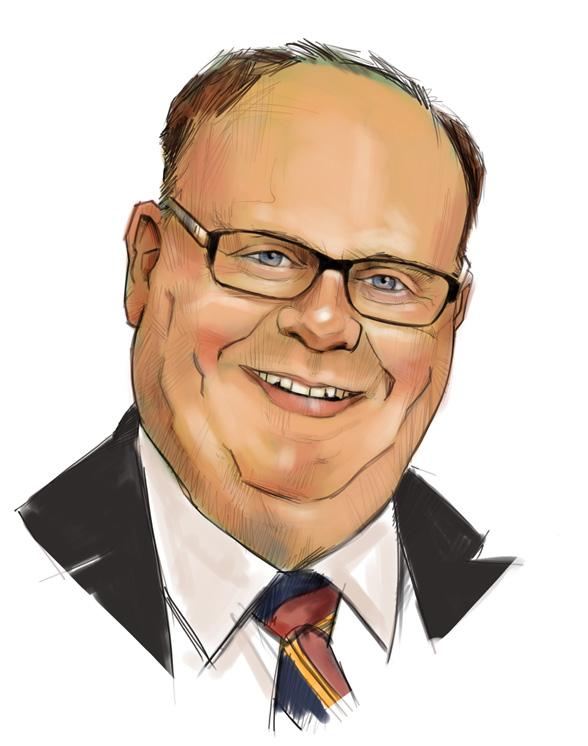
Moreover, no license was required to manufacture and sell these products. The only restrictions were that the products had to be limited to 5 milligrams per serving and 50 milligrams per package, childproof packaging must be used and sales could only be made to residents who were 21 years or older. Additionally, and unlike the other 49 states, on-premises consumption of such products was permitted.
2023: HF100, recreational cannabis legalization and its impact on hemp edibles
The existing market for hempderived THC food and drink will be allowed to continue as long as businesses register with the Minnesota Department of Health by October 1. The health department will regulate
hemp-derived cannabis products until 2025.
As is the case now, only food and beverages with hemp-derived THC in amounts up to 5 milligrams per dose are allowed — with a limit of 50 milligrams per package for edibles and a new 10 milligram per-package limit for beverages.
Vapes, flower and other products with hemp-derived THC remain illegal.
One immediate change would specifically outlaw THC-P, an extremely potent synthetic cannabinoid that has led to reports of illnesses nationwide. HHC and THC-O are also explicitly banned; only delta-8 and delta-9 THC derived from hemp are allowed.
The Office of Cannabis Management would take over the licensing, regulation and enforcement of the low-dose hemp-derived market on March 1, 2025.
One final — and significant — provision of HF 100 vis-à-vis the existing THC beverage market is that, under the new law, lower-potency hemp edibles and beverages have been added to the short list of items liquor stores are allowed to sell. Until this law change, the Minnesota Department of Public Safety’s Alcohol and Gambling Enforcement Division (AGED) had taken the position that cannabinoid beverages could not be sold in liquor stores.
Conclusion
House File 100 has opened up an entirely new industry with the legalization of recreational cannabis. Fortunately, the new law preserved an already growing industry by continuing to allow the production of the THC beverages which Minnesota consumers have quickly come to embrace and enjoy.
Contact: Jeffrey O’Brien is a partner with Chestnut Cambronne PA who works with several craft beverage companies and is on the Minnesota Industrial Hemp Association board: 612.336.1298; jobrien@chestnutcambronne.com; www.chestnutcambronne.com; in/jeffreycobrien
11 www.upsizemag.com JULY • AUGUST 2023 UPSIZE
“House File 100 has opened up an entirely new industry with the legalization of recreational cannabis.”
Jeffrey O’Brien
Chestnut Cambronne
BUSINESS BUILDERS
mergers & acquisitions
banking
Maximizing your proceeds from a business exit
by Lisa Meyer
Manage your cash flow in a few simple steps
by Craig Veurink
Have you ever considered exiting your business but wondered what steps you can take to maximize your proceeds? You can do several things to maximize your price, terms and tax efficiency when you are ready to sell and enter the next chapter of life.
Preparing your business for sale can be a long and complex process that requires careful planning and execution. Here are some steps you can take to prepare your business for sale:
1. Team of advisers
You will want to ensure you work with a trusted adviser team. The team comprises a business adviser, an accountant, an attorney and a financial adviser.
TIPS
TIPS
While you can save on taxes in the year you take the expense, it may cost you significantly at the time of sale. For example, if you choose to put through $10,000 of personal expenses, you may save 35 percent of that, or $3,500, on your taxes. However, you have now reduced your business cash flow by $10,000, which could mean a reduction in the sale price of $10,000 to $40,000 based on a one to four multiple.
• Employees
“When
1. Set a realistic goal for when you want to break even. This will help you to focus your efforts and provide a numerical benchmark for projecting your cash flow in the near future
1. Keeping good books is crucial. Buyers and any bank financing the transaction will want to review three years of tax returns and financial statements.
2. Businesses are often valued based on a multiple of one to four times the entity’s cash flow. Deductions are a benefit of business ownership but minimize unnecessary expenses as you get closer to exiting your business.
2. Put cash flow before profits. It might seem counterintuitive, but if you aren’t organizing your cash flow, you’ll run into problems that a profitable quarter might not be able to fix
3. Secure credit ahead of time. Most small business owners should secure as much credit as possible. This is the best way to be prepared for the unexpected
3. Buyers like to know they can go on vacation and the business will continue to run. Setting up your team with cross-training employees will enhance the value.
4. Consider using a payroll service. Having the professionals take care of collecting payroll taxes saves them an enormous amount of time, helps streamline their cash flow
4. Likewise, create standard operating procedures, including processes, policies, and systems that enable the business to run smoothly without your involvement.
5. A diversified customer base and customer contracts can add value to a business sale by reducing reliance on a single customer.
5. Schedule your payments. Don’t go delinquent but do divide your payments into categories such as “must pay,” “important to pay” and “flexible payment terms.” This can help keep sufficient cash on hand.
Business advisers can be the quarterback connecting your team of advisers and bringing you the right buyer.
2.
Evaluate the following aspects of the business
• Financial matters
Small businesses are usually founded by entrepreneurs who have a unique vision and a passion that drives them to work late hours, take chances and believe in what they’re doing. But, just as Thomas Edison once said that genius is 1 percent inspiration and 99 percent perspiration, successfully running a small business requires rolling up your sleeves and putting in significant time on more mundane, day-today matters.
You can be driven, impassioned and have a great idea to fill a niche or serve customers in new ways, but if you don’t attend to the details of the business, you can create for yourself a heap of problems.
Here, we’ll look at one of the most important of these business details: managing cash flow. Especially for early startups, knowing how much cash is coming in and going out, and accurately forecasting sales and expenses, is key to maintaining your company’s health.
No matter where you are in your business, keep these things top of mind:
1. Know when you will break even
It is best to have accurate and updated financial statements. Balance sheets and profit-and-loss statements should correctly show the performance and potential of your business. Remember that buyers will want to tie out the financial statements to the tax returns, so keeping good books is crucial. Buyers and any bank that is financing the transaction will want to review three years of tax returns and financial statements. Businesses are often valued based on a multiple of one to four times the entity’s cash flow. Deductions are a benefit of business ownership, but you should try to minimize unnecessary and/or personal expenses as you get closer to exiting your business.
Some of these expenses can be added back in arriving at the cash flow, but others may not.
Every small business owner keeps at the front of their mind the question:
Does the business have employees that can handle the day-to-day operations? Setting up your team and cross-training employees will enhance the value. Buyers like to know they can go on vacation and that the business will continue to run while they are gone.
do I start to turn a profit?”
Rather than wonder, set a realistic goal for when you want to break even. This will help you to focus your efforts provide a numerical benchmark for projecting your cash flow in the near future.
• Operations
2. Put cash-flow management before profits
Create standard operating procedures, including processes, policies and systems that enable the business to run smoothly without your involvement. This will enhance the business’s value and help you and your buyer during training and transition.
This might seem counterintuitive, since profits are how you survive. However, if you aren’t organizing your cash flow, you’ll run into problems that a profitable quarter might not be able to fix. Keep things organized and well managed so you can be ready for whatever success comes your way.
• Customers
3. Secure credit ahead of time
Identify and highlight your top customers. Does the business have a few clients producing a large percentage of the revenue? If so, you may want to add new clients to reduce customer concentration before the sale. In addition, customer contracts can add additional value. Reviewing contracts to ensure they are up-to-date and transferable whenever possible is essential.
Too often, small business owners wait until they need it to secure credit. This can cause a lot of unnecessary stress, or worse. Talk to experienced business owners in your area and industry ahead of time to know how much revenue you’ll need up front. Take a realistic look at the situation and plan. You might have sufficient cash reserves or a rich uncle who is only a call away, but most small business owners should secure as much credit as possible. This is the best way to be prepared for the unexpected.
• Real estate
If you rent, what are the terms and expiration date? Landlords
12 www.upsizemag.com UPSIZE JULY • AUGUST 2023
BUSINESS BUILDERS
6 www.upsizemag.com UPSIZE NOVEMBER • DECEMBER 2022
often will not allow a tenant out of a personal guarantee after they sell their business. They like to keep as many guarantors on the lease as possible.
So, as you’re nearing your exit, it is wise to keep your lease term to a minimum and/or negotiate up front with the landlord to let you out of the personal guarantee in the event of a sale of the business. A landlord may keep an owner on as a second payee regardless of whether they own the business.
If you own the property, do you plan to sell the real estate? Do you know what the current market value is? Do you pay yourself fair market rent? The cash flow for the business needs to reflect a fairmarket rent. Buyers may or may not want to purchase real estate; in either case, knowing the value and a fair rent is best.
• Other aspects of the business
A buyer will most likely want to keep the business website, phone numbers, trademarks, inventory and equipment. If you keep personal assets intermingled with business assets, you should identify them now and start removing them. For example, if you use your cell phone for business and want to keep it after the sale, you may want to get a new business line and remove the cell phone from all marketing.
3. Increase your profitability and growth potential
Buyers are looking for profitable businesses with room for growth. What additional revenue streams can you add? Can you expand your market reach or develop new products or services to boost your revenue? Be prepared to
explain to buyers various ways they can enhance the business.
Remember, do not take your foot off the gas when you have an offer! Banks and buyers will want to ensure the business continues to perform as it has in the past.
Work with your business adviser to determine your asking price and deal structure.
Your business adviser can help you determine the market value and structure for the sale of the business. There are many factors to consider, including:
• Asset sale or stock sale
• Bank financing, seller financing, or a combination of both
• Purchase price allocation
• Confidentiality
• Buyer due diligence process
• Legal documents and tax considerations
Is the preparation still needed if you already have a buyer?
Yes, you will still need to have addressed all the same items. But remember, buyers closest to your business typically pay the least for it. They generally do not recognize the value as much as someone from the outside.
Competitors usually don’t value the business as highly because they are primarily interested in the customers, employees and fixed assets, putting little value on the system of operations you have developed.
Employees often don’t value the business as much as an outside party. The only way to know you have the best price and terms is to allow other potential buyers to make offers. The more potential buyers, the better opportunity you have to maximize the price and terms.
Contact: Lisa Meyer is a business broker with Sunbelt Midwest: 612.361.4918; lmeyer@sunbeltmidwest.com; www.sunbeltmidwest.com; in/lisa-meyer-43883610b.
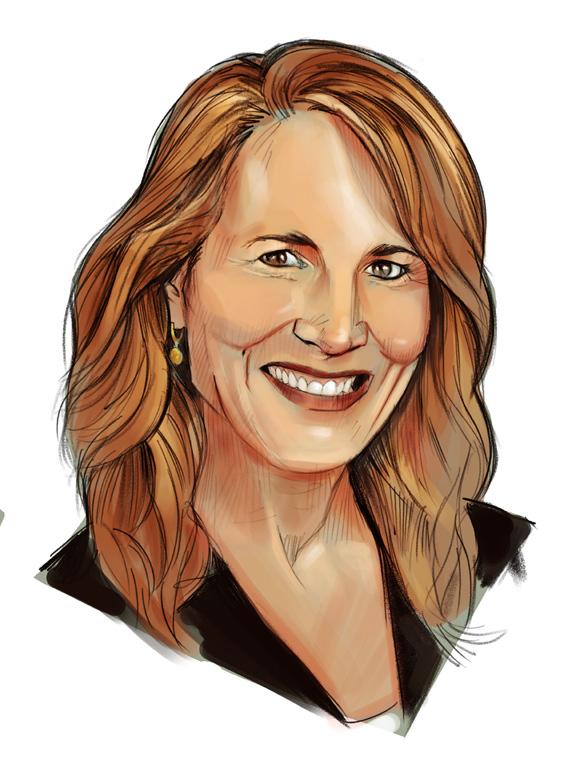
13 www.upsizemag.com JULY • AUGUST 2023 UPSIZE
“The only way to know you have the best price and terms is to allow other potential buyers to make offers. The more potential buyers, the better opportunity you have to maximize the price and terms.”
Lisa Meyer
Sunbelt Business Advisors
sustainable
Sustaining businesses
Incentives, openness make Minnesota fertile ground for environmental business
There have long been incentives associated with taking on green projects and organizations available to assist with information.
Whether it’s installing solar panels or finding ways to get reusable cups into concert venues, Minnesota has also become a hotbed for sustainability-based companies helping move the state and nation toward net zero goals.
“Minnesota is a fabulous place for sustainability and programs, incentives and organizations, says Ben Wallace, co-founder of Minify Energy and a member at Clean Energy Economy Minnesota, a nonprofit working toward a cleaner energy ecosystem.
The utilities themselves often have programs. Organizations like the Center for Energy and Environment are eager to assist, he says.
And a unique set of sustainability-based companies has grown from this commitment, not just statewide but nationally and, in many cases, locally. Here, a few
by Andrew Tellijohn
of those companies talk about their motivations, their causes and the challenges they’re overcoming to get there.
Reducing by reusing
As a citizen, Michael Martin gets really frustrated hearing stories about companies like Exxon, which he says rake in billions in profits without being forced to clean up any of the environmental messes they make making their cash.
As a music producer, he sees up close the amount of waste that takes place in stadiums and arenas across the country. As an environmental innovator, he decided to do something about it.
Martin started r.Cup to work with cities and venues to educate attendees about the perils of throwaway and even recycled cups and manufactured reusable ones that can be returned, washed and used multiple times.
www.upsizemag.com
14 UPSIZE JULY • AUGUST 2023
photographs by Tom Dunn
Music producer and envronmental innovator Michael Martin, founder and CEO of r.Cup, is operating washing stations in five cities and dipping his toes in the Twin Cities market, as well.
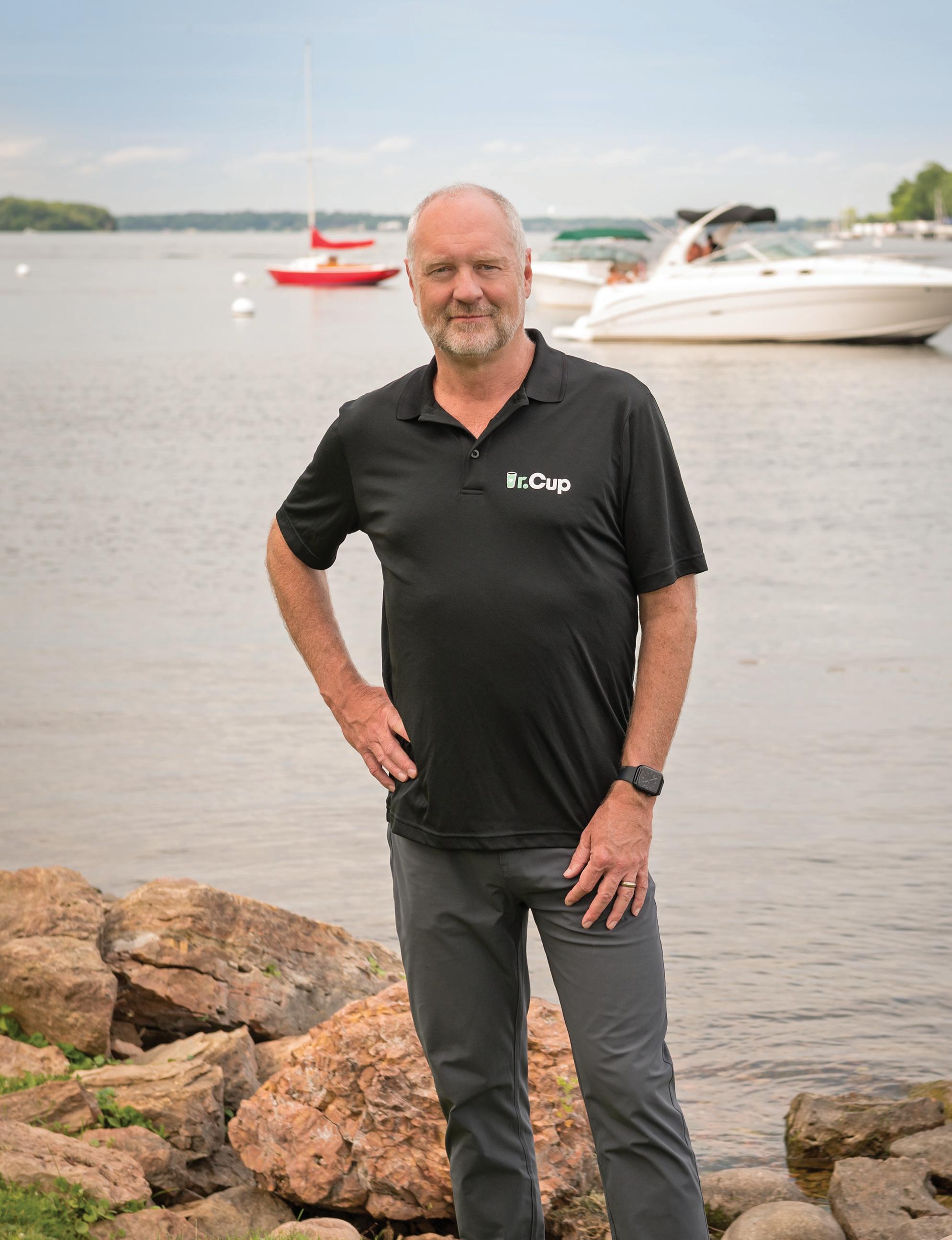
COVER STORY
There are challenges involved. Lack of infrastructure. People believing recycling is the best answer.
Locally, he’s come across state laws preventing the use of reusable serveware. More globally, the cups cost the user more. The venues don’t have washing facilities. So, r.Cup installs washing facilities in economic development zones in each city with which it partners, cleans and returns them.
“You have to have the bins to collect them, the dumpsters where you need to have the liners, you’ve got training, education, social media,” he says, adding that when r.Cup gets more volume, those costs will come down some. “The mission is to build the infrastructure, platform and movement for the reuse economy.”
To prove the point, r.Cup donates 10 percent of its profits to nonprofits aimed at reducing single-use plastic waste.
And the company is making progress. It’s operating in about 200 locations across five cities, including Denver, Seattle, Los Angeles, San Francisco and Washington, D.C. It’s dipping a toe in the hometown Twin Cities market, as well, using its product at an every-other-week concert in Excelsior.
“People can come see us in action out there,” he says. “It works great.”
Martin says r.Cup is focused on operational ease and on growing the company’s environmental impact while building credibility by doing it the right way. For example, he says it takes three ounces of water to wash one of his cups versus 66 ounces of water to make a single-use plastic cup.
“It’s much more for aluminum and bioplastic,” he adds. “So, you start to think about that and, at every measure, CO2 emissions, reuse wins on all of those.”
Taken further, Martin says it isn’t just single-use plastics that need to be marginalized. It’s single use in general.
“Whether it’s bamboo or aluminum or plastic or bioplastic or paper, it’s all single use,” he says. “It’s taking tons of resources to create those items and to dispose of them. Even if you recycle them all, those things are
contributing to emissions, toxins, water usage. That’s why I started this company.”
From consultation to implementation
Ben Wallace worked in technology and marketing for a number of Minnesota-based companies over the years when he arrived at 75F. It was there he recognized the opportunities for enhancing the environmental solidity of old buildings through the use of technology.
Then he met Jeremy Davis, who has worked in sustainability consulting around the country for 20 years. Together, in 2019, they started Minify Energy, an energy efficiency and smart technology implementation firm that helps people and their buildings operate more cleanly.
“He saw the frustration of putting proposals in front of these companies, which are predominantly nonprofits that he worked with, and them not taking action on the recommendations for conservation and leveraging the incentives and making an impact,” Wallace says. “We created Minify Energy to help activate.”
The company does full building assessments for commercial, nonprofit, government and multi-family facilities, coming back with recommendations, assessments, potential designs and systems that could be implemented. But that’s not where the work ends.
Minify also follows that through by helping implement projects, as well. Sometimes that means Minify and its, to-date, small team will do some of the work itself. Or it might mean that the company helps coordinate between its clients and partners in the sustainable area of choice.
“We’re really positioning as an energy efficiency and renewable energy contractor,” he says. “We really focus on the implementation.”
A lot of existing buildings are inefficient, Wallace says, adding that most of the jobs so far have been retrofits.
“There’s a lot of aged buildings,” he says. “The average commercial building is over 50 years old. You know, preinternet, pre-IoT, pre-smart buildings, pre-LED lighting.”
Minify works with the utility partners in the buildings to get and analyze several years worth of records, which can be challenging and time consuming. Starting the com -
16 www.upsizemag.com UPSIZE JULY • AUGUST 2023
“The mission is to build the infrastructure, platform and movement for the reuse economy.”
— MICHAEL MARTIN, FOUNDER AND CEO, R.CUP
COVER STORY
r.Cup is bringing reusable cups to event venues around the country in hopes of jump-starting the reuse movement.



pany right before COVID hit was a sizeable “bump in the road,” as well, though it did provide some added expertise in indoor air quality and pathogen abatement work.
Much of the work so far has been in low-hanging fruit areas, such as smart, automated HVAC controls and lighting retrofits. In the last year, bolstered by the Inflation Reduction Act, the company has expanded into electrification, electric vehicle charging, geothermal systems and solar.
“We help identify and leverage grants, rebates and tax incentives, which is a complex landscape to navigate,” he says. “We try to make it easier for building owners, property managers to have an understanding of their current systems, what the opportunities are, what the financials are for payback and other commercial real estate benefits.”
With those programs, the increased cost associated with electric and gas and the ability to pass along some savings to potential tenants who would be locating in a cleaner building and it’s getting easier to make the case.
“All these incentives that stack together make a really strong financial case,” he says.
Saving with solar
Billy Parsons and Justin Wagner worked together for an electrical contractor for several years. After a while they went their separate ways, Wagner for a different job and Parsons to start BlueSky Electric & Solar.
“We always kept in touch,” Wagner says. “We’re pretty good friends and our values align. Eventually it got to the point where he’s like, ‘Why don’t you just come over to BlueSky?’”
When he did, the company took off. Parsons, CEO, had started it as a traditional electric company with the hope of someday getting into solar installations. When Wagner came on board as president, it freed up Parsons to start pursuing that kind of work.
“We’re a full-blown electrical contractor,” Wagner
www.upsizemag.com 17 JULY • AUGUST 2023 UPSIZE
COVER STORY
says. “We do commercial, industrial, residential service and construction, remodels, the whole thing. One of our niches — our strongest niche — is the solar and EV charging.”
Last year, solar projects accounted for about a quarter of BlueSky’s revenues. This year that will exceed 50 percent. “It’s like it’s taking over,” he says. BlueSky is pursuing a contract with a chain of gas stations to install car chargers at each location. If that happens, that sector would become a quarter of the company’s revenues, as well.
Total revenue for the year is on pace to more than triple from low seven figures to mid seven figures.
“It’s becoming a major, major part of our business,” he says, adding that the company, which hires only union employees, will likely be looking to add more employees in the near future, as its original electrical work hasn’t decreased significantly either.
Carbon footprints, government incentives drive sector
Some of the work comes organically — work on a residence in a neighborhood and a couple of neighbors get curious and start asking questions. A lot of it also comes from friends and peers in the industry who are approached about doing solar projects but who have not yet taken them on.
The market for such projects is incredibly competitive, Wagner says, adding that it’s challenging competing against larger companies with big marketing budgets.
“Thankfully, we have a lot of friends in the industry,” he says.
While Wagner coming on board freed Parsons’ time,
CONTACT:
Shane Grutsch is CEO and founder of St. Paul Commodities: sgrutsch@stpaulcommodities.com; www.stpaulcommodities.com; in/bshanegrutsch
Michael Martin is CEO and founder of r.Cup: mm@rcup.com; www.rcup.com; www.rcup.com; in/michael-martin-09b490
Austin Wagner is president of Bluesky Electric & Solar: 651.497.1295; office@blueskyelectricco.com; www. blueskyelectricco.com; in/austin-wagner-41292118
Ben Wallace is co-founder of Minify Energy: 651.330.4987; connect@minifyenergy.com; www.minifyenergy.com; in/linkpositive
their renewed partnership also came at a fortunate time to be pursuing solar projects.
Part of the demand continues to stem from ongoing city, state and federal financial incentives for installing green projects. For example, the city of Minneapolis has a Green Cost Share Program under which businesses can apply for up to $75,000 in funds to reduce building energy use or up to $50,000 to put solar on the roof.
“We’ve helped a couple customers — they haven’t gotten the full $50,000 yet, but close to it,” Wagner says, adding that some customers who opt for net metering with Xcel Energy generate more electricity through solar than they need and end up getting money back by selling power back to the utility. “That’s where the big payoff is.”
Additionally, equipment costs have dropped as much as 80 percent. And it reduces dependency on local utility companies.
“It makes complete sense in our minds,” he says. “Whatever your motive is, if it’s financial, it makes sense. If it’s reducing your carbon footprint and helping the environment, that definitely makes sense too. … If you are a homeowner or a business owner, you’re not at the mercy of the utility company all the time. Anything you can control in a business, you should.”
Trading animal fats and oils
In the early 2000s, Shane Grutsch was working for Restaurant Technologies Inc., a Twin Cities-based broker of restaurant cooking oils, running the company’s supply chain. He liked the trading aspect of the job and he recognized the growing opportunity as biodiesel was taking off.
So, he left to start St. Paul Commodities a few years later, effectively setting himself up in 2007 as a middleman. His company now trades about 1.4 billion pounds of fats and oils each year, effectively becoming the largest independent aggregator of fats and oils in the U.S. About 20 percent of the volume originates internationally, primarily from Southeast Asia and South America.
The company owns about 1,000 rail cars and has three facilities, one each in Kansas, Missouri and Tennessee, and about 25 third-party locations where product gets transferred.
It’s primarily a transferer of product, but does also provide some logistics, quality improvement processing and aggregation.
“We’re a middleman between the origin of these products and their destination, which is a fuel producer,” Grutsch says.
“We ship by truck, by rail, by barge and by vessel,” he says. “We sell to a renewable fuel producer and they’ll
18 www.upsizemag.com UPSIZE JULY • AUGUST 2023
COVER STORY
make renewable diesel or biodiesel as a replacement for petroleum diesel.”
It can be challenging working in an industry supported by government incentives that are regularly either modified or up for renewal at the whim of a vote, but state and federal incentives also help provide a market for the production and use of these fuels.

“If you produce fuel from virgin soybean oil, you’re eligible for a certain amount of credit, but if you use cooking oil instead, you get a larger credit he says. “Along with that has come some additional regulation in terms of verifying that used cooking oil is, in fact, used cooking oil.”
The company bought a software company to help solve the compliance situation, allowing it to trace the products it sells. “Government regulations, incentive programs have been tough to navigate,” he says.
Good timing, as the company is on the verge of big growth. Right now, the market is about 2 billion gallons a year for biodiesel. The growing market of renewable is expected to increase to between 5 billion and 6 billion gallons over the next four years. The company currently has about 80 employees, but that could grow quickly.
Over the years, St. Paul Commodities has built a customer base of around 300 partners across the fuel and feed industries to which he trades depending on the market and status of any government programs. As the renewables take off, his customer base starts to change to companies like Phillips 66, Chevron, Marathon and Exxon.
“In the biodiesel world, a big plant might be 50 million gallons,” he says. “In the renewable diesel world, a big plant is a billion gallons. They don’t want to deal with 700 suppliers. They want to deal with people that can bring them some scale and some volume.”

19 www.upsizemag.com JULY • AUGUST 2023 UPSIZE
Solar energy and electric car charging stations have been a game changer for fast-expanding BlueSky Electric & Solar, quickly generating more than half of its revenues.
Not so bad
by Andrew Tellijohn
Unemployment in Minnesota sits below 3 percent. Labor market participation is high. Airport traffic counts across the country are approaching and even surpassing pre-pandemic levels, so consumers are still spending money.
Consumer confidence, reportedly spurred by the strong labor market, also seems at least cautiously on the rise.
And yet, inflation remains high, some business sectors are struggling mightily. Supply chain issues — though largely stabilized in the big picture — still plague certain industries. And, in early July, Reuters cited research from PitchBook indicating a first half of the year decrease of 48 percent globally in venture capital investment, with the U.S. declining by 65 percent.
So, who is right?
The somewhat contradictory mix of indicators has local experts in various sectors optimistic that there isn’t a bottoming out on the way, but also realistic in that the recovery will likely remain slow — and better for some industries than others.
“My personal opinion is I think we’re going to be just fine,” says David Russick, founder and managing partner of Gopher Angels. “I don’t see us going into a recession. I think there will be sectors within the economy that will be in recession, which we’ve seen before. But with the unem-
ployment rate under 4 percent, with consumers still spending — maybe differently, but still spending — I’m not really worried about the country going into the recession.”
Banks, investors still making deals
Russick emphasizes that he runs a network of 80 individuals, not a fund. Each individual investor may see things differently. He’s upbeat. “Everything points to continued slow growth,” he says. Founded just over a decade ago by him and his wife, Sara Russick, Gopher Angels is on track to do more deals this year than it has the last few years.
He acknowledges there are market challenges, though. One thing the Gopher Angels network has seen this year is that follow-up funding is harder to find, meaning the larger amounts typically sought after the seed and Series A funding rounds his group provides.

“It’s been a little bit more highlighted — we like this company, we’re going to invest, but one of the diligence points is ‘Do we think they can get follow-on funding and keep growing or are they going to fail even though we funded them because they can’t continue to grow,’” he says. “It’s a bigger issue than I’ve seen in the past.”
He suggests those targeting funding consider lean growth and perhaps finding strategic partners earlier as a sign of market interest to future funders. “It’s a positive,” Russick says, “if we see the early-stage company have somebody like Johnson & Johnson or Medtronic showing some interest.”
20 www.upsizemag.com UPSIZE JULY • AUGUST 2023
Economic uncertainty high, but key industry sectors still active
Banks investing
Melissa Johnston, chief commercial officer at EntreBank, says she also has heard confusion and concern over conflicting indicators. She adds the companies her bank has partnered with collectively seem to be doing pretty well. “I haven’t seen anything that would lead me to believe people are struggling.”
EntreBank is taking a bit more time in underwriting, analyzing applicants’ risk to make sure they have considered what would happen if the economy did dip, she says.
At the same time, EntreBank has not declined anybody solely due to the economy, Johnston says, adding that those seeking loans and lines should have some cash on hand to deal with potential bumps and be crystal clear in their budget forecasts how they are getting to their numbers.
“And I would say look at overall efficiency,” she says. “There have been ways with different technologies to build more efficient processes and procedures. That feels like a good practice.”
Logistics concerns easing
One of the biggest causes of indigestion in recent years has been the supply chain. Again, it’s industry-specific, but the worst of those concerns seem to have passed, says Emily LeVasseur, co-founder and managing director at Waypost Advisors.
Electronics-oriented companies, where circuit boards and chips are still difficult to come by, are having the toughest time right now.
But consumer demand is steady. Discretionary spending is a little under the gun, she says, because inflation has raised prices on day-to-day required goods. That said, holiday goods are likely inbound or close to reaching shores on the West Coast.
Transportation prices are relatively low, so some consolidation is likely coming in steamship lines and trucking. And warehouse space, which has been constrained because there is a lot of built-up inventory, should be easing up with new capacity coming online in the next six to 12 months, she says, especially in non-temperature sensitive dry goods storage. So, it’s not perfect, but it’s a lot better. “I think things are fairly stable where they are,” she says.
But there are some issues looming. In the longer-term, she says, geopolitical and environmental issues, like drought, could cause problems. More immediately, contract discussions between the United Parcel Services (UPS) and the Teamsters union stalled in early July, creating the specter of a potential strike of 340,000 workers.
Melissa Johnston is chief commercial officer at EntreBank: 651.384.4607; melissa@entrebank.com; www.entrebank.com; in/melissa-johnston-banker
“That would be ridiculously disruptive,” she says. “For parcel and ground shipping, you basically have UPS, FedEx and the U.S. Postal Service.”
Trucking company Yellow, formerly known as YRC Worldwide, could file bankruptcy, too. The low-priced lessthan-truckload (LTL) shipper’s struggles could be a big deal because of the intricacies of the LTL market and the likely price increases required by switching carriers. “It’s not as easy to switch carriers when it’s LTL shipping as it is when trucks are carrying your full load.”
For those enjoying a reprieve from shipping concerns, LeVasseur says this would be a good time for companies who need better planning processes and systems to work on upgrades. “If things feel like they are getting a little more peaceful on the supply chain front, it’s not a bad idea to really dig in and fix the stuff that was broken.”
Money for mergers
Greg Loeschke is bullish about the status of M&A, as well, at least in his lower-middle market area, though that also is industry specific.
The managing director of Lingate Financial Group works primarily with lower-middle market companies typically doing revenues between $5 million and $50 million in revenue. He heard at a conference last month that activity within larger market sectors has been tougher and he suspects the same is true with smaller “Main Street” businesses.
But he’s been busy and he sees signs that will continue. He’s seen booms in M&A during the lead-up to the last two presidential elections and he expects that trend to continue.
He also has seen significant activity this year from companies that struggled during COVID but have spent the last couple years recovering and re-establishing their consistent financial performance. He expects that to continue over the next year or two. Keeping a clean balance sheet is key.
“There’s not that interest cost burdening these businesses,” he says. “That makes a difference. They’ve got some flexibility, working capital, lines of credit, but no term debt.”
There are buyers. Those low debt loads have left banks with money to lend. And there is, he says, literally trillions in committed private equity capital available.
“The lenders are really motivated,” Loeschke says. “They want to put money to work, especially in this higher interest environment. There’s equity money out there. There’s debt. You still have an active SBA program on the lower end of what we look at. There is money out there looking to back solid acquisition opportunities.”
Emily LeVasseur is co-founder and managing director at Waypost Advisors: www.waypostadvisors.com; in/emily-levasseur-aa1a4516
Greg Loeschke is managing principal of Lingate Financial Group: 763.546.8201; gloeschke@lingate.com; www.lingate.com; in/loeschke-greg-3166414
David Russick is founder and managing director of Gopher Angels: david.russick@ gopherangels.com; www.gopherangels.com; in/davidrussick
www.upsizemag.com JULY • AUGUST 2023 UPSIZE
21
catching up
by Andrew Tellijohn
Learning how to pivot
WaterFilters.net founder now owning all angles of ecommerce
When Jamin Arvig told Upsize in 2014 that his company, WaterFilters. net, was in its first chapter and that the book was certain to be a page turner, he was not kidding.
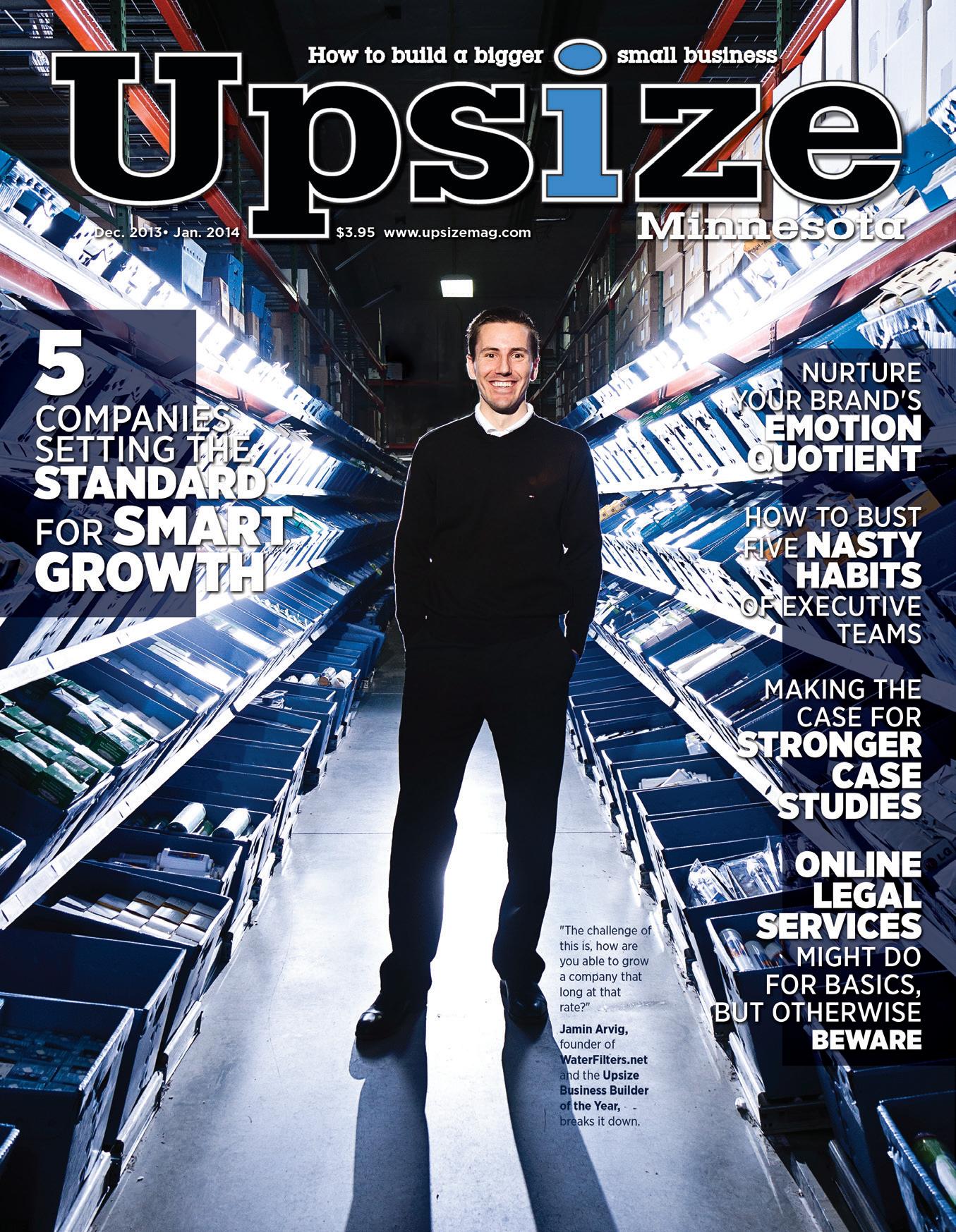
The primarily e-commerce-driven water filter company had hit $37 million in revenue, up from $17 million in 2011 and $10 million in 2010, from selling water filters online from a distribution center in Zumbrota.
Since then, Arvig, co-founder, has capitalized on the e-commerce expertise built up in those early years of WaterFilters.net and started, acquired and spun off many companies.
That original company is now part of aiC Brands, which buys and grows ecommerce brands using its expertise in marketing, operations and technology. That company has been on the Inc 500 Fastest Growing Businesses list and been a final -
Jamin Arvig, founder of WaterFilters.net, has evolved that company into an ecommerce empire
www.upsizemag.com UPSIZE JULY • AUGUST 2023
22
ist for an integrity award from the Better Business Bureau.

“We’ve evolved a lot,” he says. “We’ve expanded to a lot of different product lines. The water business is one of many other aiC Brands. We still have it. We have toy brands and kid brands and electronics and other types of products in aiC Brands that we own and operate.”
Arvig also is co-founder of aiCommerce, an intelligent marketplace management company powering profits for brands, manufacturers and large resellers trying to own online channels.

Then there’s Brands 10X, which helps ecommerce companies go to in-store sales.
“We’re multi-channel online, but now even offline as well,” he says. “When we started over 20 years ago, it was possible to run a business

23 www.upsizemag.com JULY • AUGUST 2023 UPSIZE
aiC Brands/ aiCommerce
Description: aiC Brands buys and builds ecommerce brands; AI Commerce powers growth for brands looking to build online presence
Headquarters: Owns businesses based across the U.S., including WaterFilters.net
Founded: 2001
Co-founder: Jamin Arvig, who also sits on the board at Thrasio
Website: www.aicommerce.com
out of a garage and compete with Walmart. We know because we did it. But after so much has changed and sophistication levels have gone up dramatically, companies need to have the sophistication of a $1 billion dollar company to operate now. That’s what we do.”
And, if that wasn’t enough, he’s on the board of advisers for Thrasio, a top 25 Amazon seller and one of the largest acquirers of Amazon businesses.
What happened?
Arvig says the company focused on water filters for quite a while building momentum, scale and expertise. Early on, he passed on many opportunities.
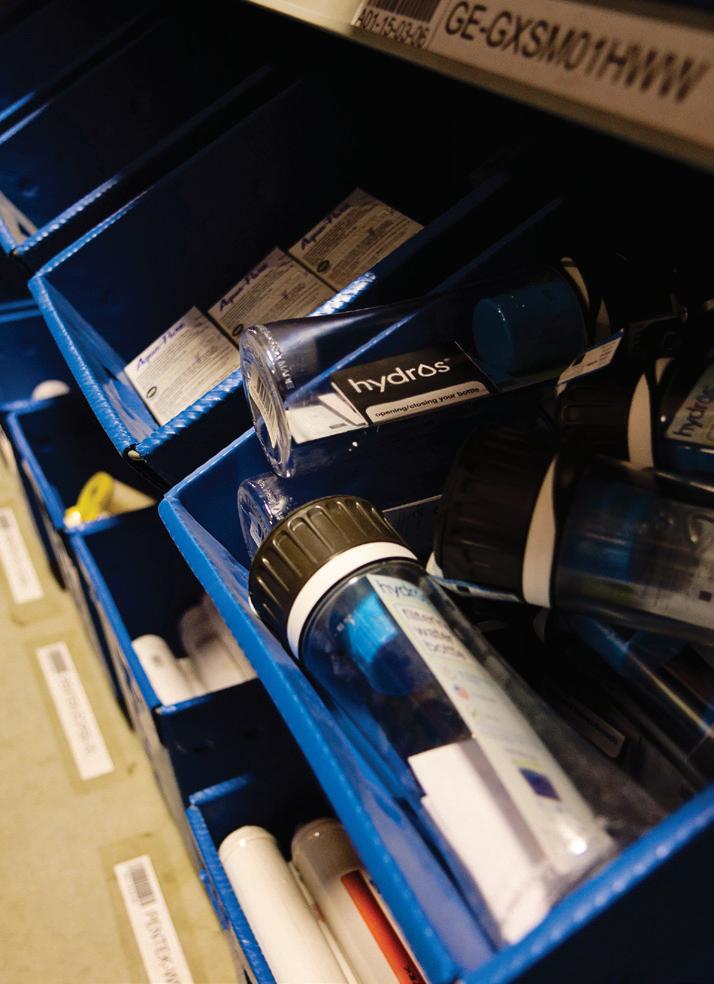
“I think when people were calling on us to see ‘How are you doing what you’re doing,’ that was kind of the turning point,” he says, adding that his company can fulfill for the likes of Amazon, Walmart, directto-consumer websites, the whole gamut.
The company does fulfillment and
management of other companies’ and people’s orders.
“So, we manage all of the strategy and marketing and execution to make sure their sales grow. Advertising, case management and there is customer service — a million things that go into it behind the scenes,” he says. “We had to build all of this technology for ourselves way back then. We’ve been doing this for 20 years and then, as it got more complex, very few can do this.”
This was not, he says, the initial intent. Arvig was, at first, focused on water filters. But at a certain point it was clear there were opportunities available partnering with others that dwarfed the original idea.
“After we had scale on water heaters, and lots of other opportunities, and we could digest those opportunities, then it made perfect sense to expand into those other product categories,” he says.
Always an entrepreneur
Not bad for a guy with law and engineering degrees, right? Turns out he
Contact: : Jamin Arvig: sales@aicommerce.com; www.aicommerce.com; in/jaminarvig
co-founder of aiC Brands
was always an entrepreneur.
“I just didn’t know how to prepare to be an entrepreneur at the time,” he says. “With all the lessons learned, I might do it differently now. But I am grateful for the education. I learned about the world via various clubs all over campus during engineering school. And I learned how to learn in law school, in addition to learning applicable things like business law, patent law and real estate law.”
What were the lessons learned along the way? There were many. First, he discovered Entrepreneur-
“The vast majority of people say, ‘Now my business isn’t worth anything and it’s going to go down forever.’
Understanding business model opportunities and how to pivot is important to stay ahead of the game.”
Jamin Arvig
www.upsizemag.com UPSIZE JULY • AUGUST 2023 24
ial Operating System (EOS) and Scaling Up, each of which he says is better than the systems he was using to build WaterFilters.net.
Second, he joined Entrepreneur’s Organization (EO) and Young Presidents’ Organization (YPO) peer groups and has found them “phenomenally helpful” for bouncing ideas around. “I wish I had done that earlier,” he says.
Third, he spent a lot of time at Harvard Business School learning about different business models. He would encourage business owners to learn more about those earlier so they understand more about the options they have before getting started.
“Some business models are better than others,” he says, adding that

tion at some juncture.
“The vast majority of people say, ‘Now my business isn’t worth anything and it’s going to go down forever,’” he says. “Understanding business model opportunities and how to pivot is important to stay ahead of the game.”
Finally, Arvig says, he’s learned a lot about the importance of differentiation. In fact, when he’s investigating potential deals, a strong product that is differentiated is one of the key things he’s looking for. It could be in the branding or a new technology or something else, but it has to be different.
And it can’t just be different on the day the business starts, either, it has to stay unique. “If that’s the case, you know your business can
from peers, learning from implementing some of these management operating systems to help scale and always being ready and willing to pivot hard and fast and boldly to stay ahead.”

What would it be today?
While Arvig made his run on perfecting ecommerce, his final advice was to focus on what the needs will be tomorrow, not yesterday. A few years ago, it was drones, 3D printing and blockchain. Now?
Artificial intelligence.
“We can see today this stuff works and is disrupting industries left and right,” he says. “My view is that it’s going to be more dramatic in its impact than any of those areas that were forecasted to have great impacts combined.”
catching up Leadership is lonely. We build your tribe. Find your tribe at www coalition9 com
BANK
Crown Bank
6600 France Avenue South, Suite 125
Edina, Minnesota 55435
Ph: (952) 285-5800
www.crown-bank.com
UPSIZE RESOURCE DIRECTORY




BUSINESS BROKER
• Jeff Wessels, President & COO
At Crown Bank, we want to be partners in your possibilities. Because possibilities are what the future is made of. From something as personal as growing your savings, to something as big as growing your business, our bankers and staff have the expertise and energy to partner with you to make that happen.
Member FDIC




BANK
U.S. Bank

Tesh Patel
Email: pritesh.patel1@usbank.com
Phone: 720-667-7578
At U.S. Bank, we help you earn more without asking you to do more. That means more money, more purchasing power and more expertise, so you can focus on running your business. Let us find the best business credit card for you and turn your hard work into easy money.
MidCountry Bank
7825 Washington Ave So, Suite 120, Bloomington, MN 55439 Phone (952) 698-6274
We help business owners achieve their exit goals. True North Mergers and Acquisitions serves companies with $5 million to $150 million in revenue and their strategic advisors. We specialize in business owner exits, business valuations, and acquisition services in the lower middle market. If you are considering exiting your company, contact our team today.

BOOKKEEPING
Three Pillars Bookkeeping

838 S Lake Street, Forest lake, MN 55025 Office 651-899-2002
www.threepillarsbookkeeping.com
We offer a full range of bookkeeping, Payroll and accounting services, such as entering and paying bills, invoicing, recording deposits, reconciliation and updating vendors and customers. We’re your outsourced CFO, affordable to retain with no loss of quality.
Sunbelt Business Advisors

Peggy DeMuse, pdemuse@sunbeltmidwest.com
651-288-1627
Lisa Meyer, lmeyer@sunbeltmidwest.com
612-361-4918
www.sunbeltmidwest.com
Thinking about buying or selling a business? Sunbelt is the world’s largest seller of private companies. We work with business owners to help them understand the current value of their business and how to maximize their net proceeds at the time of sale. Sunbelt will provide business owners with a completely confidential, no-obligation value range.
CFO SERVICES

Integrated Consulting
Cathy Sedacca, managing director 612-802-1784 (c)
Cathy.Sedacca@integrated-consulting.net

www.integrated-consulting.net

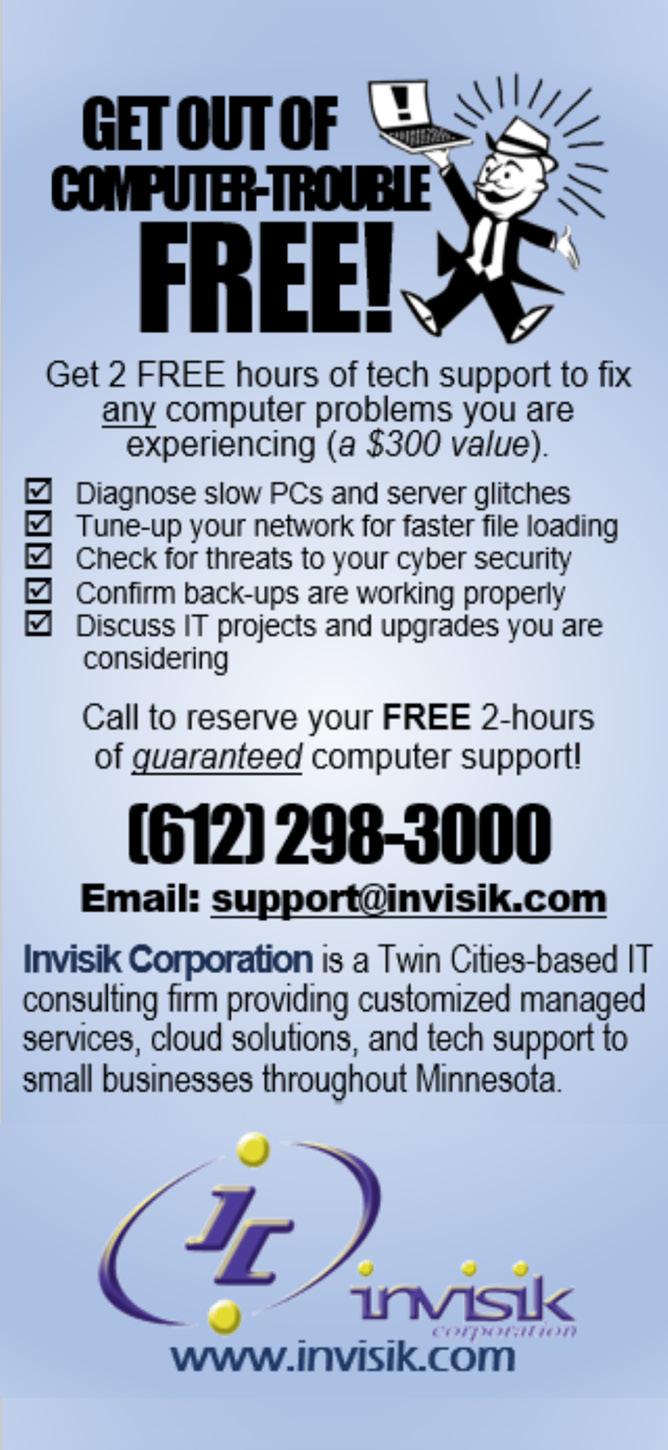
Integrated Consulting delivers Chief Financial Officers to small businesses on a fractional basis. From projections to cash flow tools to assistance with all things financial. We provide 30 years of expertise on a small business budget.
Show Content
• Best Practices to Grow Enterprise Value


• Business Owners Share their Exit Stories
• Learn what it takes to exit on your terms!
• Guests share need-to-know advice for lucrative outcomes
• Episodes are all under 30 minutes
Subscribe on Apple, Spotify, Google, iHeart, Stitcher




Sponsorship Opportunities!
Download episodes and order the book! https://www.poisedforexit.com/
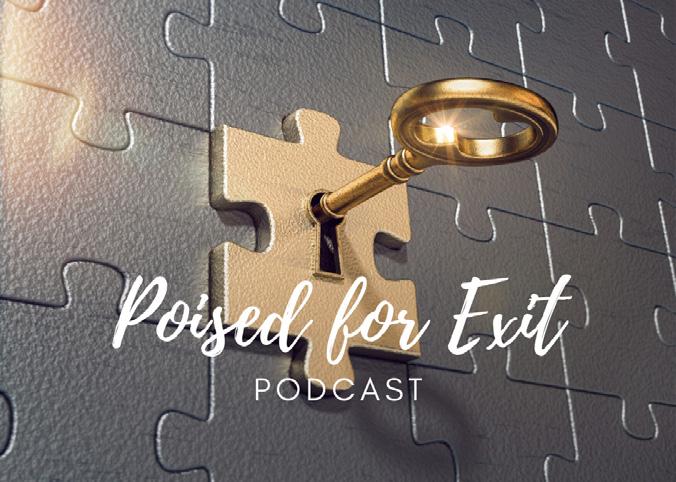
BANK
Software Development Done Right in your backyard We help companies have a successful software product release using our talented team and a proven process. CLOUD WEB MOBILE IoT GET IN TOUCH connect@lab651.com Book a meeting ADVERTISING SECTION 26 UPSIZE JULY • AUGUST 2023 www.upsizemag.com
UPSIZE RESOURCE DIRECTORY
COMMERCIAL PHOTOGRAPHER
Tom Dunn Photography
651-368-2047 www.tomdunnphoto.com
Tom Dunn tom@tomdunnphoto.com
Tom is a commercial photographer who has been helping businesses tell their unique story with photographs for websites and marketing materials since 2006. Tom works closely with his clients to understand their business and branding strategy and creates images that support their mission and success.
EXIT STRATEGIES
Exit Planning Institute
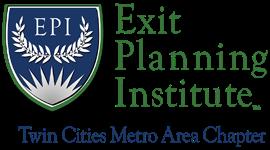
Twin Cities Metro Area chapter 763-208-9119
exit-planning-institute.org
Jessica Hawthorne, Administrator admin@e-officeconnection.com
Through the Certified Exit Planning Advisor (CEPA) credential, the Exit Planning Institute provides professional advisors with the content, tools, and training needed to gain more access to business owners, strengthen relationships, and become the most valued advisor.
HR Solutions for Small Business
Attracting and retaining the right people will fuel your growth Take the guesswork and headache out of the people side of your business with help from Optima HR Solutions
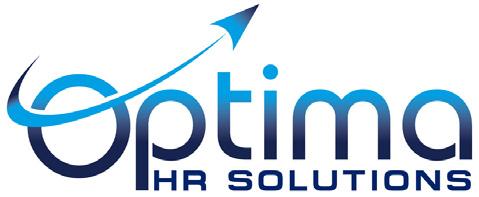
From people strategies to operations and tactics we work along side you as an extension of your team Take the HR hat off your head and let us help you win with better results through people
EXIT STRATEGIES
Exit Planning Strategies, LLC
p. 651 426 0848 — www.exitplanstrategies.com
Dyanne Ross-Hanson: President e. drh@exitplanstrategies.com
Exit Planning Strategies, LLC, a firm dedicated to offering business owners objective, fee based, financial consulting in the development of intentional ownership transition plans. We direct an inter-disciplinary process to explore planning options, map realistic exit strategies and to develop an Action Checklist, to accomplish an owner’s unique objectives.

LAW FIRM
Bassford Remele
100 South 5th Street, Suite 1500 Minneapolis, MN 55402 www.bassford.com
612.333.3000
Bassford Remele is in the business of meeting legal challenges. Our trial lawyers solve disputes for corporate clients in Minnesota and across the nation and we have a depth of experience in many industry areas. When businesses seek solutions, from the conference room to the courtroom, they seek Bassford Remele.
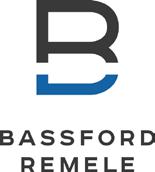
LEADERSHIP DEVELOPMENT
Prouty Project

6385 Old Shady Oak Road, Suite 260 Eden Prairie, MN 55344 952.942.2922 | www.proutyproject.com
Kari Baltzer | stretch@proutyproject.com
Our leadership development engagements and cohort-based leadership programs – Prouty L3 and Prouty i•will – link behavior to team performance in your workplace through the lenses of Leading Self, Leading Others and Leading the Business. We focus on STRETCHing participants to lead business within internal and international divisions. Give us a call or stop by.
MERGERS & ACQUISITIONS
Lingate Financial Group

7575 Golden Valley Road, Suite 100 Minneapolis, MN 55427 763-546-8201 www.Lingate.com
Greg Loeschke — Managing Principal
Founded in 1945, Lingate Financial Group is a leading provider of lower middle market merger & acquisition advisory services, representing privately held businesses of all types with revenues of $5 – 50 million. Lingate helps business owners with marketbased valuations, business sales, mergers, acquisitions, recapitalizations, and internal transitions among family members, partners and management.
MERGERS & ACQUISITIONS
True North M&A
Peggy DeMuse, pdemuse@tnma.com; 651-288-1627
Lisa Meyer, lmeyer@tnma.com; 612-361-4918
www.sunbeltmidwest.com
We help business owners achieve their exit goals. True North Mergers and Acquisitions serves companies with $5 million to $150 million in revenue and their strategic advisors. We specialize in business owner exits, business valuations, and acquisition services in the lower middle market. If you are considering exiting your company, contact our team today.
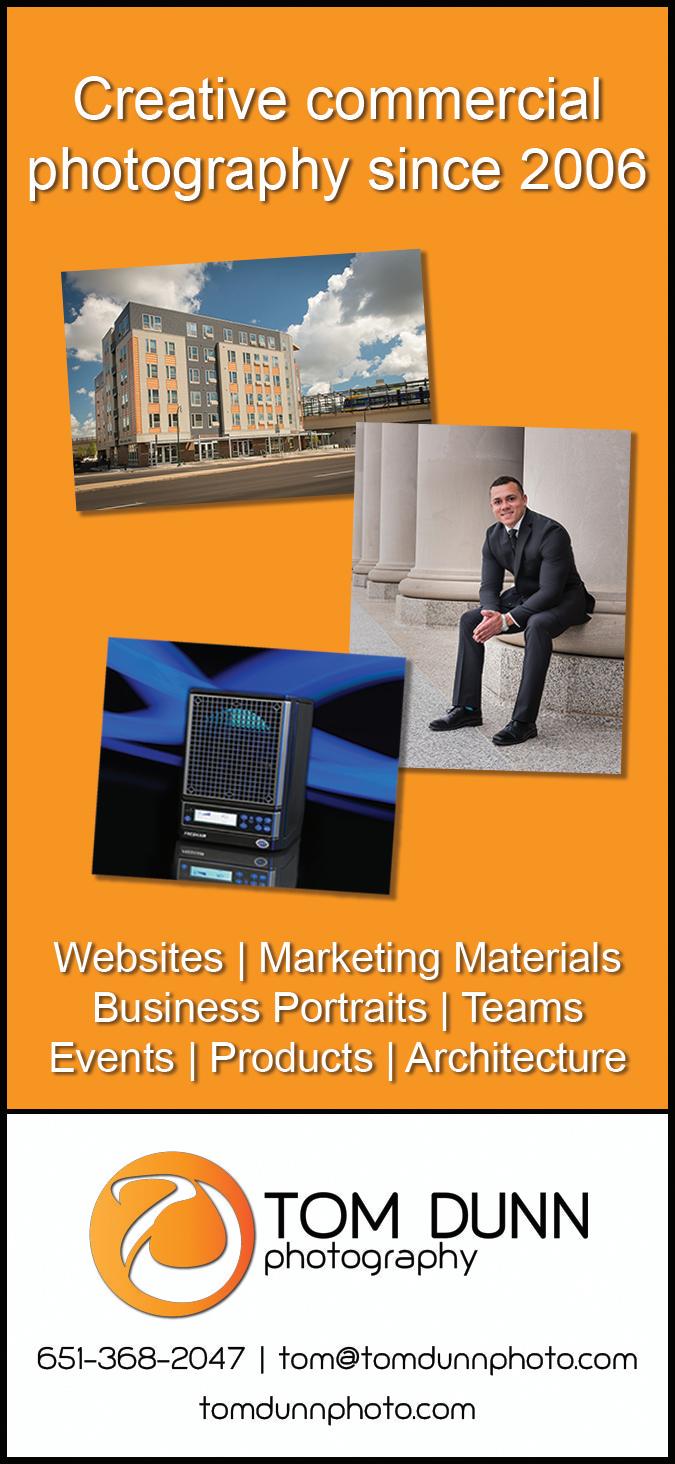
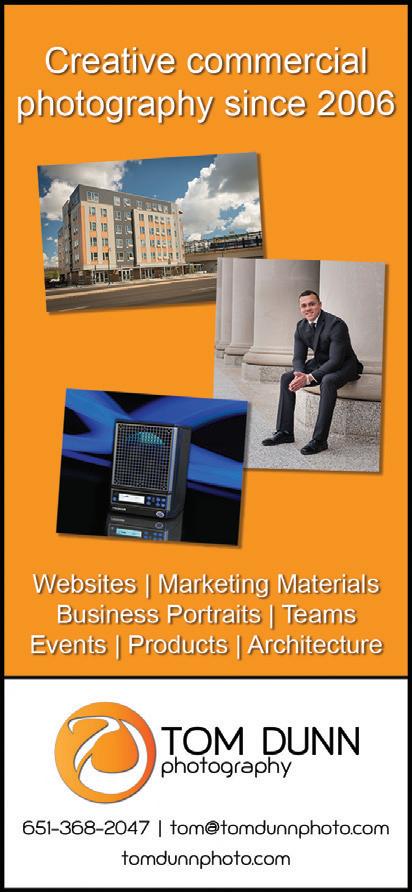
PEER GROUP
Coalition9
PO Box 834
Lester Prairie, MN 55354-7832
www.coalition9.com
Aaron Eggert | aaron@coalition9.com

w: optimaadvisoryllc com
p: 612 547 5759
e: sschad@optimaadvisoryllc com
www.upsizemag.com
Leadership is lonely. We build your tribe. Coalition9 memberships provide peer advisory groups with an emphasis on personal and professional growth. As a member, you will experience interactive learning while connecting to the resources and people that will help you be your best. Our vision: Changing business nine leaders at a time™
Get and keep the people you need to grow the business you want
ADVERTISING SECTION JULY • AUGUST 2023 UPSIZE 27
UPSIZE RESOURCE DIRECTORY

PUBLIC RELATIONS
Bellmont Partners
3300 Edinborough Way, Suite 700
Edina, MN 55435
Brian Bellmont, President
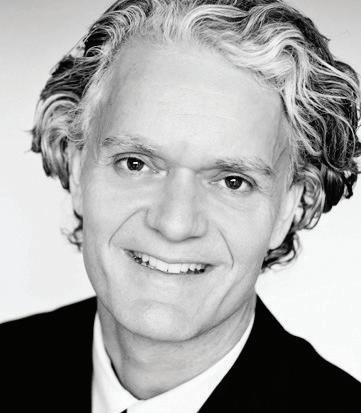
612-255-1111, info@bellmontpartners.com www.bellmontpartners.com
Bellmont Partners helps growth-focused Minnesota organizations solve complex challenges. Our experienced communications strategists generate results that build brands, drive engagement and support business objectives.
SALES DEVELOPMENT
Minnesota Sales Institute
301 – 4th Avenue South, Suite 272
Minneapolis, MN 55415 (612) 789-5700
www.mnsales.com
Contact: Scott Plum, Founder
Minnesota Sales Institute works with business owners, CEO’s and salespeople who are committed to learn, grow and change their selling skills and process to adapt to the current marketplace. We offer full and half day, interactive workshops; onsite classes; individual coaching and executive consulting.
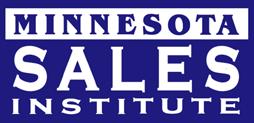
SBA LENDER
21st Century Bank
2335 Highway 36 W Suite 202 Roseville, MN 55113
612-372-2178 • www.21stcb.com
At 21st Century Bank, we know what it takes for businesses to survive, grow, and prosper in today’s market. For over 100 years, we have been your community partner. A family-owned bank, with expertise in all SBA and conventional lending programs covering all stages of your business. We tailor solutions that respond to your unique business and banking needs.
STRATEGIC PLANNING
Prouty Project

6385 Old Shady Oak Road, Suite 260
Eden Prairie, MN 55344
952.942.2922 | www.proutyproject.com
Kari Baltzer | stretch@proutyproject.com
We start with a blank sheet of paper to elevate your clarity on vision and purpose, create alignment in your strategy to achieve your vision and gain commitment to execute. What are your “market, product/ service, people, and financial” strategies over the next 1-5 years? Can you articulate your strategic plan on one page? Join us in our Creative Think Tank to stretch your thinking and ignite your creativity.
TRANSITION PLANNING
KeyeStrategies

Minneapolis, MN
Keyestrategies.com 763-350-5563
Julie Keyes, Founder/CEPA
“KeyeStrategies LLC advises business owners in Transition and Exit Planning. Julie Keyes is both a Certified Exit Planning Adviser (CEPA) and Value Growth Adviser. She is also a faculty member for the Exit Planning Institute’s Global organization and President of its local Chapter.”
WEALTH MANAGEMENT
JNBA Financial Advisors
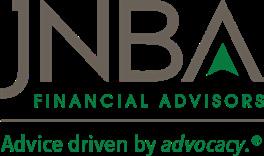
8500 Normandale Lake Blvd., Suite 450 Minneapolis, MN 55437 952.844.0995 www.jnba.com
Cärin Viertel, Director of Client Services
Being a small business we understand the needs of small business owners. And with 40+ years of experience in providing conflict-free advice, our proactive and integrated approach allows our multi-generational teams to put clients first when delivering customized financial life planning and investment strategies to help maximize their resources.
VENTURE CAPITAL
VENTURE CAPITAL
WORKPLACE WELLBEING
Brimacomb + Associates
Brimacomb + Associates

R3 Continuum
TCF Tower, Suite #1600, 121 South Eighth St., Minneapolis, MN 55402 612-803-3169 * www.brimacomb.com
TCF Tower, Suite #1600, 121 South Eighth St., Minneapolis, MN 55402 612-803-3169 * www.brimacomb.com
Rick Brimacomb, rick@brimacomb.com
Rick Brimacomb, rick@brimacomb.com
7825 Washington Ave. S., Suite 500 Bloomington, MN 55439 R3c.com 866-927-0184 toll free
Chief Strategy and Relationship Officer
Chief Strategy and Relationship Officer
Results-oriented advisory firm with unparalleled access to executive suites and financing sources. Emerging companies and established professional services firms rely on our depth of knowledge and deep-network connections to grow client lists, assemble project resources and secure new sources of funding.
Results-oriented advisory firm with unparalleled access to executive suites and financing sources. Emerging companies and established professional services firms rely on our depth of knowledge and deep-network connections to grow client lists, assemble project resources and secure new sources of funding.


GROW OR DIE
Move your business forward with investment capital generation, deep-level network connections and strategic refinement consultation from Brimacomb and Associates. We partner with emerging companies and professional services firms to offer unparalleled access to professional resources, executive suites and financing sources.
R3 Continuum (R3c) is a global leader in workplace behavioral health, crisis, and security solutions. We help enhance workplace behavioral health and performance, speed recovery from disruption, and maintain safety and security on all levels, with our best-practice, human-centered, and technology-enabled continuum of solutions.
www.brimacomb.com
612.803.3169 • rick@brimacomb.com
ADVERTISING SECTION 28 UPSIZE JULY • AUGUST 2023 www.upsizemag.com

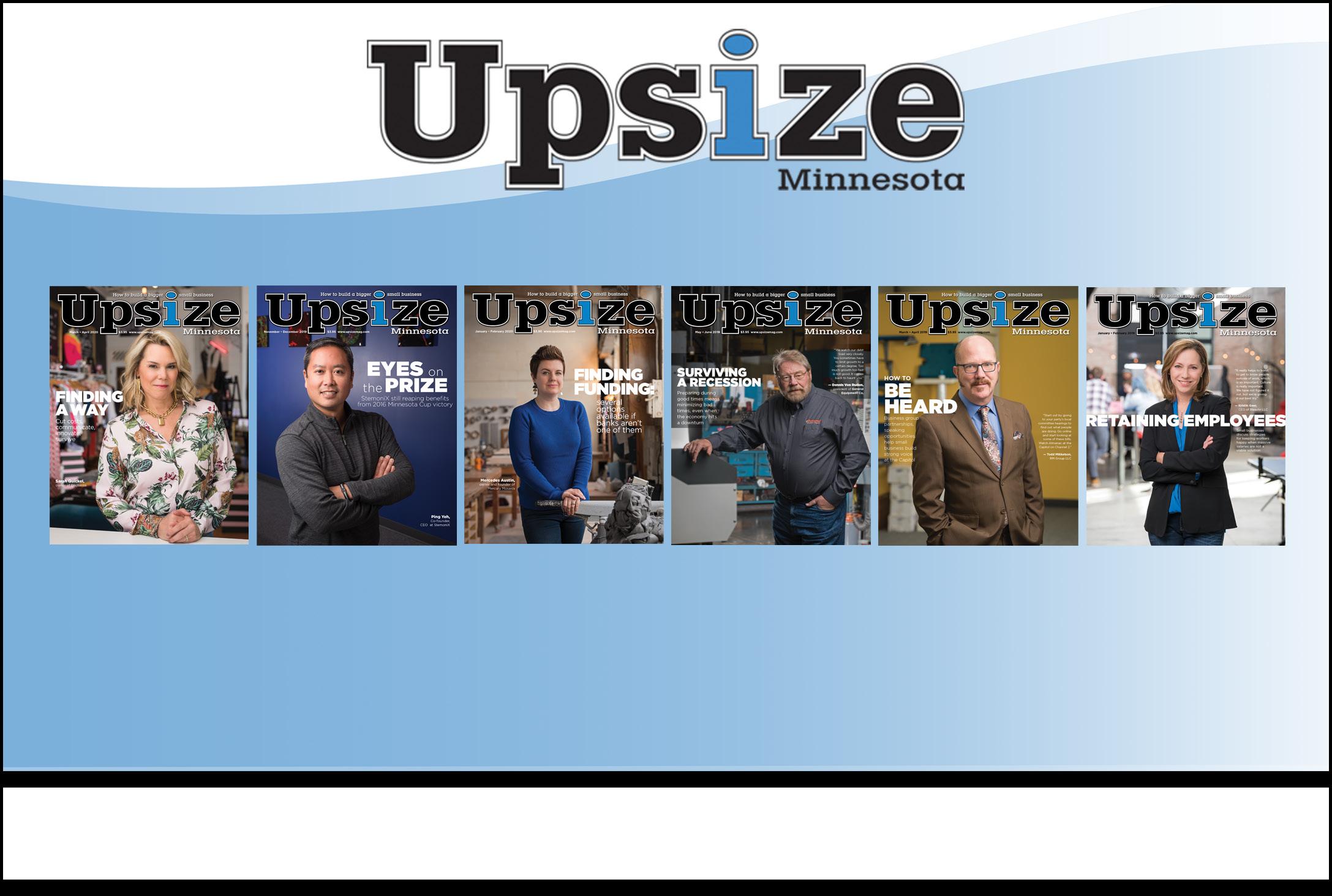
Discounts for new and existing Upsize advertisers with a full-year contract DESIGN PHOTOGRAPHY WEBSITES EMAIL CAMPAIGNS Broad Axe Media: The full-service studio for your small-business design needs 612.827.5290 DO YOU NEED SUBSCRIBE TO THE DIGITAL EDITION OF UPSIZE MINNESOTA Follow this link to receive your FREE DIGITAL SUBSCRIPTION: bit.ly/3tBoCAV UPSIZE MINNESOTA is your source for the advice you need to help grow your business By signing up for your FREE DIGITAL SUBSCRIPTION to Upsize, you will receive how-to advice six times a year in a full-page, easy-to-read format, complete with active links to relevant service providers and experts.








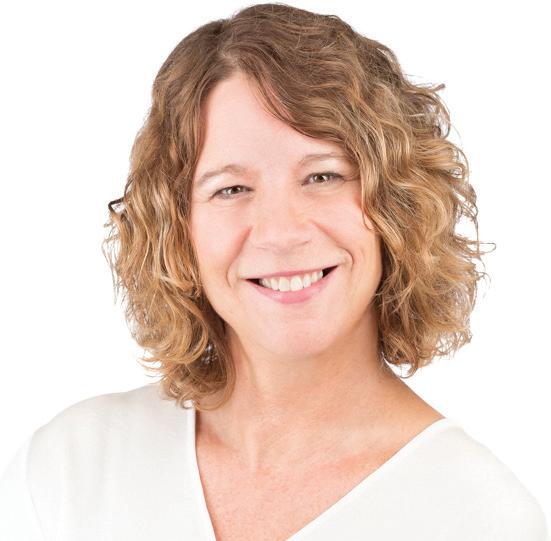
We recently sold a business like yours and STILL have many buyers interested in your industry. Please call us right away if you are considering the sale of your business. Lisa Meyer Business Broker Cell: 612-801-2299 Direct number: 612-361-4918 Email: lmeyer@sunbeltmidwest.com Contact our Sunbelt Business Advisor team: Minnesota’s Largest Seller of Companies Office Address: 1300 Godward St. NE, Suite 6000 | Minneapolis, MN 55413 Have you considered exiting your business? Peggy Demuse Business Broker Cell: 612-730-8921 Direct number: 651-288-1627 Email: pdemuse@sunbeltmidwest.com









































































































